Health
IDI launches the Sewankambo Training Program for Global Health Security in Africa
Published
3 months agoon
By
Eve Nakyanzi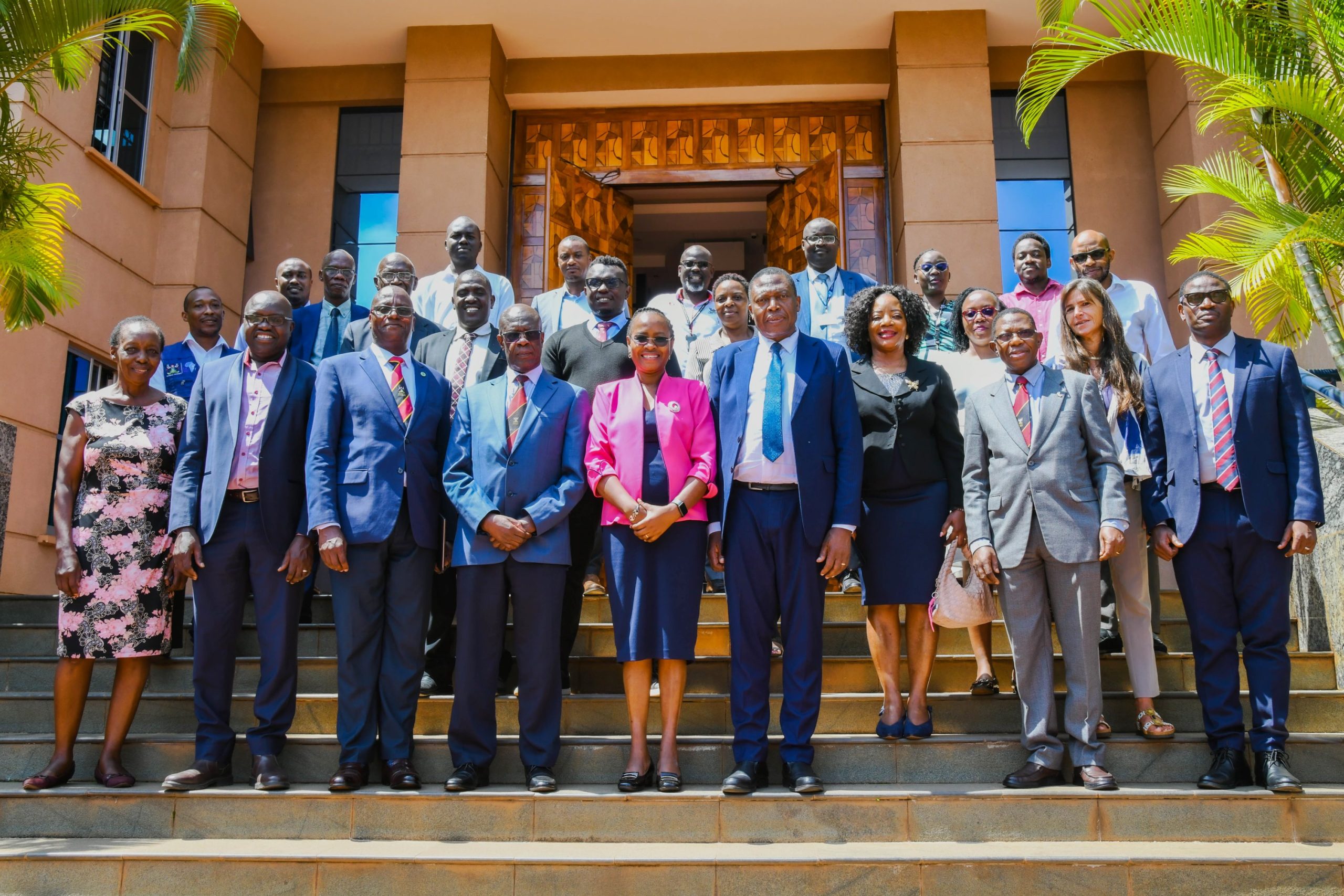
On 27th November 2025 the Makerere University Infectious Diseases Institute (IDI) unveiled the second cohort of fellows—marking a significant step forward in strengthening global health security across the region. The cohort brings together five exceptional emerging scientists whose research areas reflect the continent’s most urgent health priorities. They include Mr. Dickson Aruhomukama in Antimicrobial Resistance (AMR); Dr. Rodgers Ayebare in Case Management, Infection Prevention and Control; Mr. Julius Okwir in Epidemic Intelligence and Community Health; Dr. Robert Zavuga in Vaccines and Medical Counter Measures; and Ms. Phionah Tushabe in Planetary Health, Water, Sanitation and Hygiene (WASH). Their selection marks a new chapter in nurturing homegrown expertise capable of safeguarding Africa’s health systems for generations to come.
The Acting Vice Chancellor, Prof. Sarah Ssali while presiding over the event emphasized the significance of launching the Sewankambo Training Program for Global Health Security as a milestone not only for IDI but for Makerere University and the continent at large. She highlighted the urgency of strengthening Africa’s capacity to predict, prevent, and respond to emerging epidemics, noting the rapid rise in zoonotic disease outbreaks and the persistent weaknesses exposed by crises like Ebola and COVID-19. She celebrated the legacy of Prof. Nelson Sewankambo and the scholars shaped by his leadership, stressing that the program embodies the university’s commitment to producing transformative health leaders grounded in multidisciplinary expertise and One Health principles.
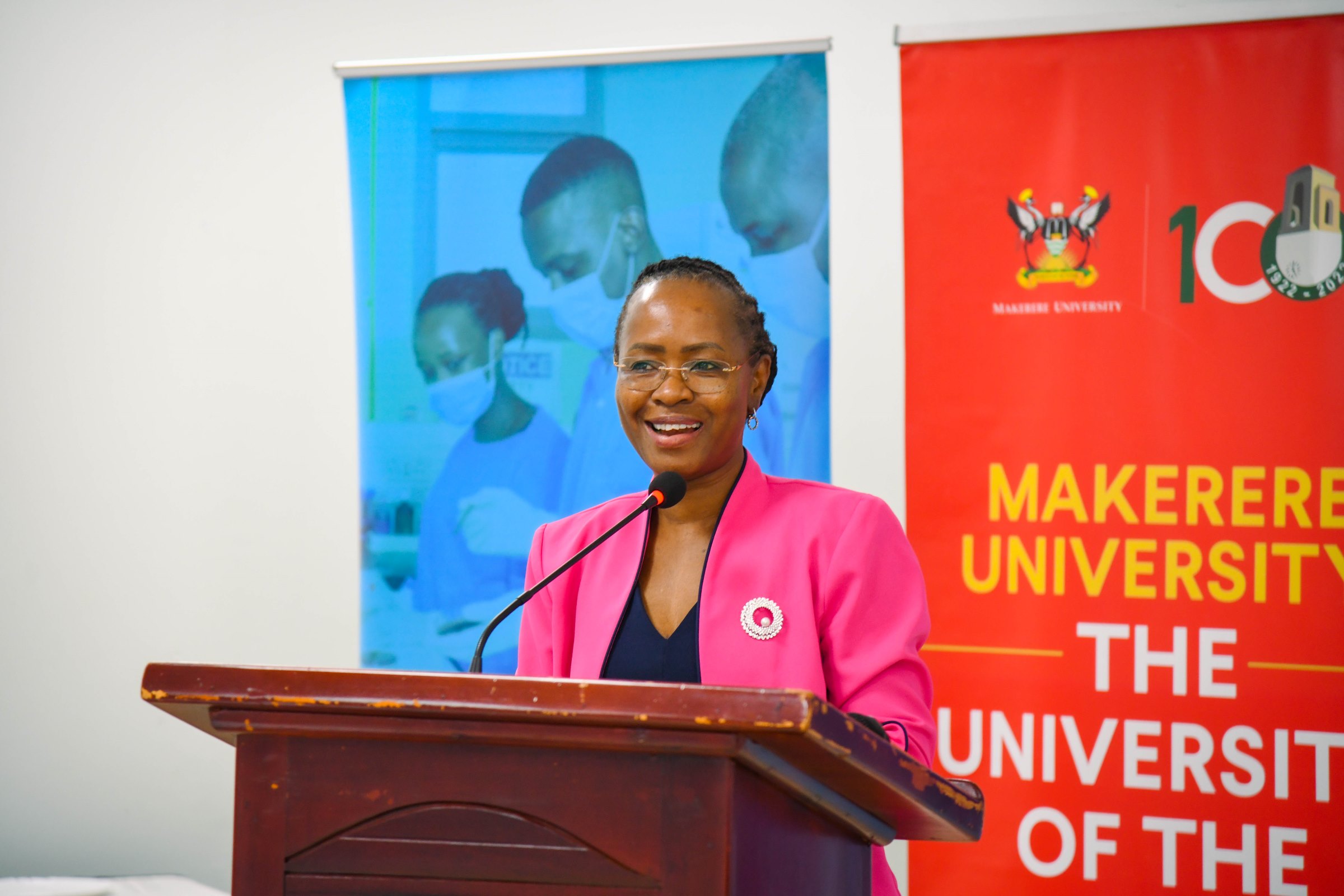
She also called for stronger collaboration across colleges—particularly with the College of Veterinary Medicine, Animal Resources and Biosecurity (CoVAB)’s Center for Biosecurity and the College of Health Sciences (CHS) to ensure that scarce scientific resources are fully utilized and that future health professionals are prepared for an evolving global landscape. In closing, she reaffirmed Makerere University’s dedication to advancing research excellence, nurturing responsible stewardship, and upholding the values that define the Sewankambo legacy.
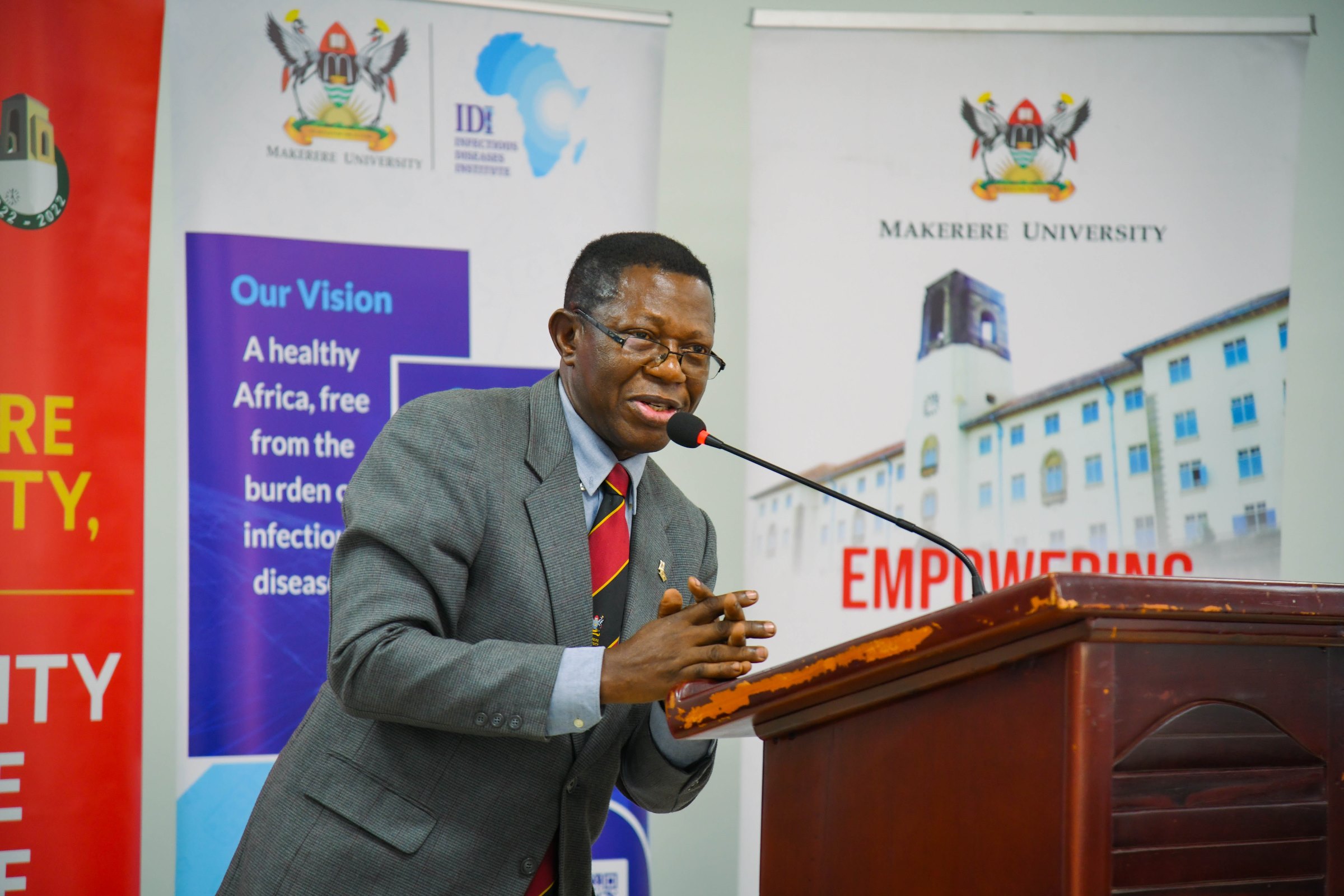
The Academic Registrar Prof. Buyinza Mukadasi also conveyed his heartfelt congratulations to IDI and Prof. Nelson Sewankambo upon this remarkable milestone. He reflected on his recent engagements with the Institute—most notably the launch of the African Centre of Excellence in Bioinformatics—and expressed his admiration for the world-class research emerging from IDI, including publications in leading journals such as The Lancet and Nature. He noted that Makerere takes great pride in IDI’s work across multiple initiatives, from THRiVE to ongoing research collaborations, and wished the newly launched fellows a rewarding and impactful journey in research.
The Deputy Principal CHS, Prof. Richard Idro congratulated the new cohort and welcomed them into what he fondly referred to as “the cookhouse,” where future scientific leaders are shaped. Drawing from his own formative encounters with Prof. Nelson Sewankambo, he reflected on the deep mentorship culture that has defined generations of clinicians and researchers at Makerere—sharing stories of being challenged, supported, and pushed toward excellence. He reminded the fellows that their research will influence health policy and clinical practice far beyond individual patients, carrying long-term implications for national and global health.
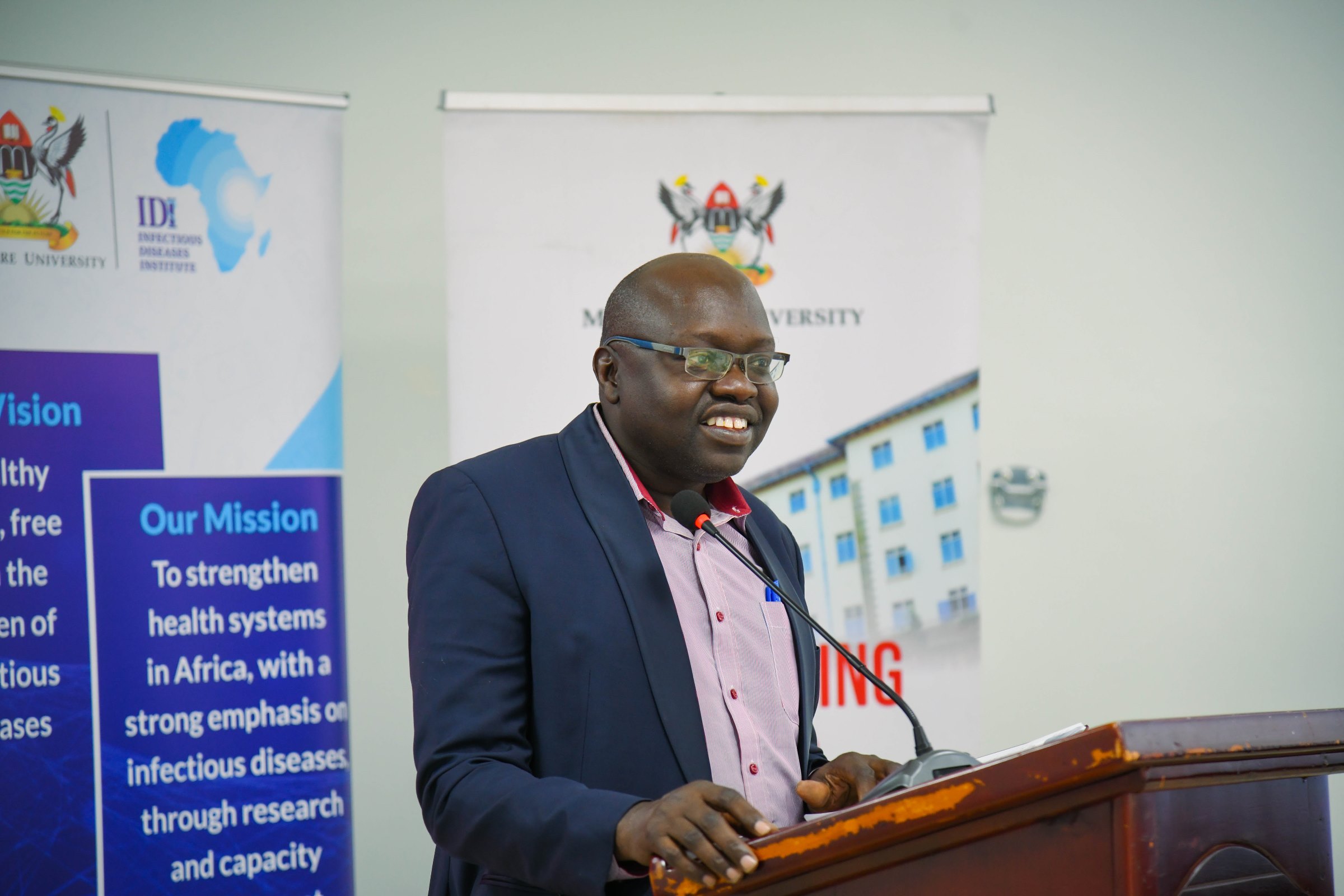
Prof. Idro also acknowledged the critical challenges facing clinical disciplines, especially the constraints of promotion pathways that disadvantage highly skilled specialists without PhDs. He appealed for reforms to safeguard the future of key fields like anesthesia and surgery. Closing his remarks, he celebrated the College’s 100-year legacy, expressed gratitude for the university’s continued support, and invited alumni and partners to contribute ideas that will shape the next century of innovation, training, and service.
Dr. Charles Olaro, the Director General of Health Services, highlighted the essential role of academia in strengthening Uganda’s global health security, noting how recent outbreaks—from COVID-19 to Ebola—have revealed both the country’s progress and remaining gaps. He emphasized that programs like the Sewankambo Training Program are vital for building resilient health systems, advancing research, and shaping policies that can respond swiftly and effectively to public health threats.
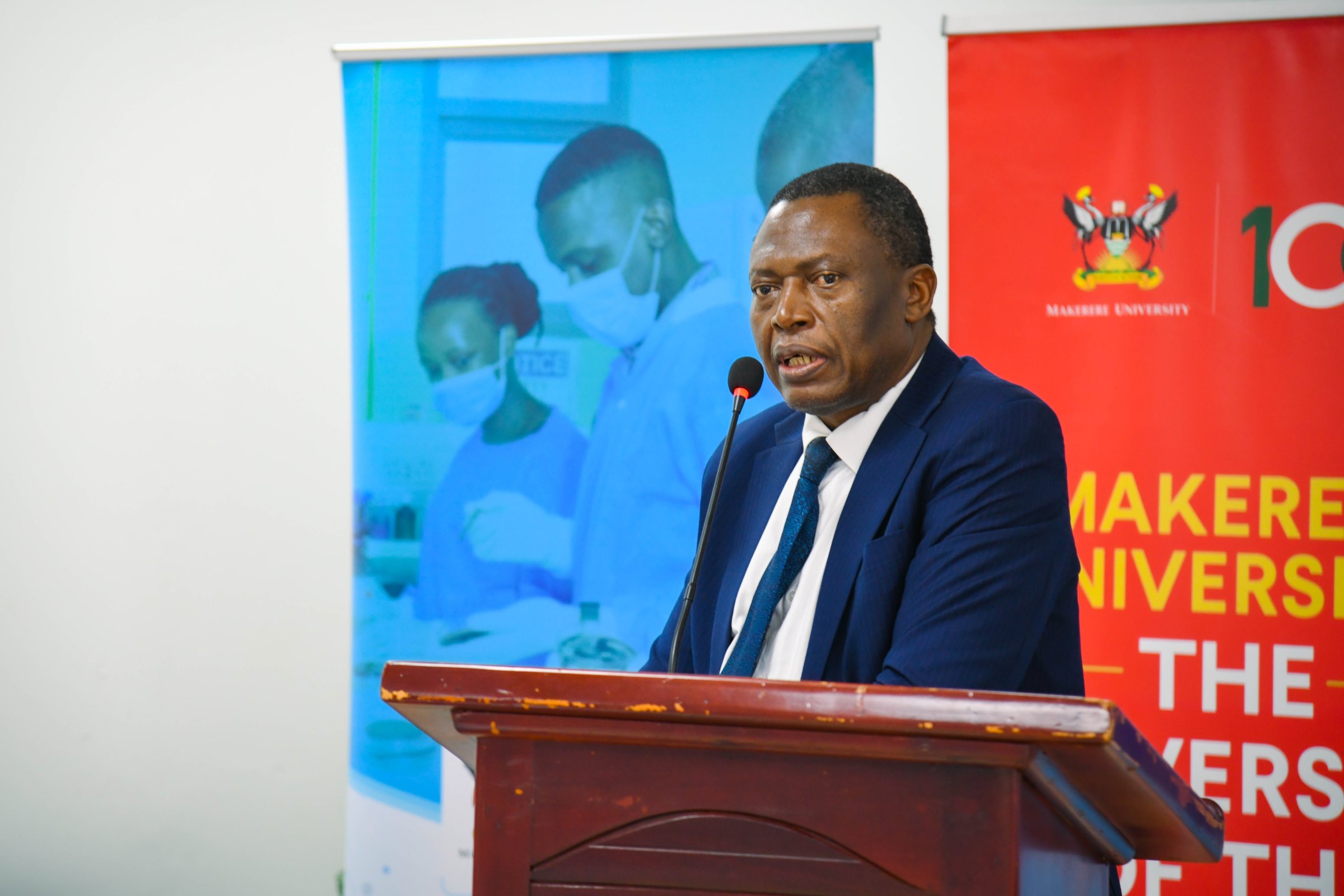
Reflecting on the strong collaboration between the Ministry of Health and institutions such as Makerere University and IDI, he pointed out how research emerging from academia continually informs national policy, including work presented at recent conferences on non-communicable diseases and community health. Dr. Olaro congratulated the new cohort, reminding them that their work carries significant responsibility, as their research and leadership will influence health outcomes far beyond individual clinical care. He also underscored the need for stronger regional capacity, improved emergency response systems, and sustained mentorship to ensure that communities across Uganda—and the region—benefit from timely, coordinated outbreak preparedness.
In his address, Prof. Nelson Sewankambo commended the achievements of the first cohort and challenged the new fellows to uphold—and even surpass—the high standards already set. Reflecting on the rigorous selection process, he reminded the cohort that they were chosen because they demonstrated exceptional promise in a highly competitive field. He noted that the launch of this program comes at a particularly critical moment, as Africa CDC has just established a new Division for Health Security and Sovereignty, even as global financing for health research continues to decline. This, he said, makes the commitment to sustaining the program both bold and necessary.
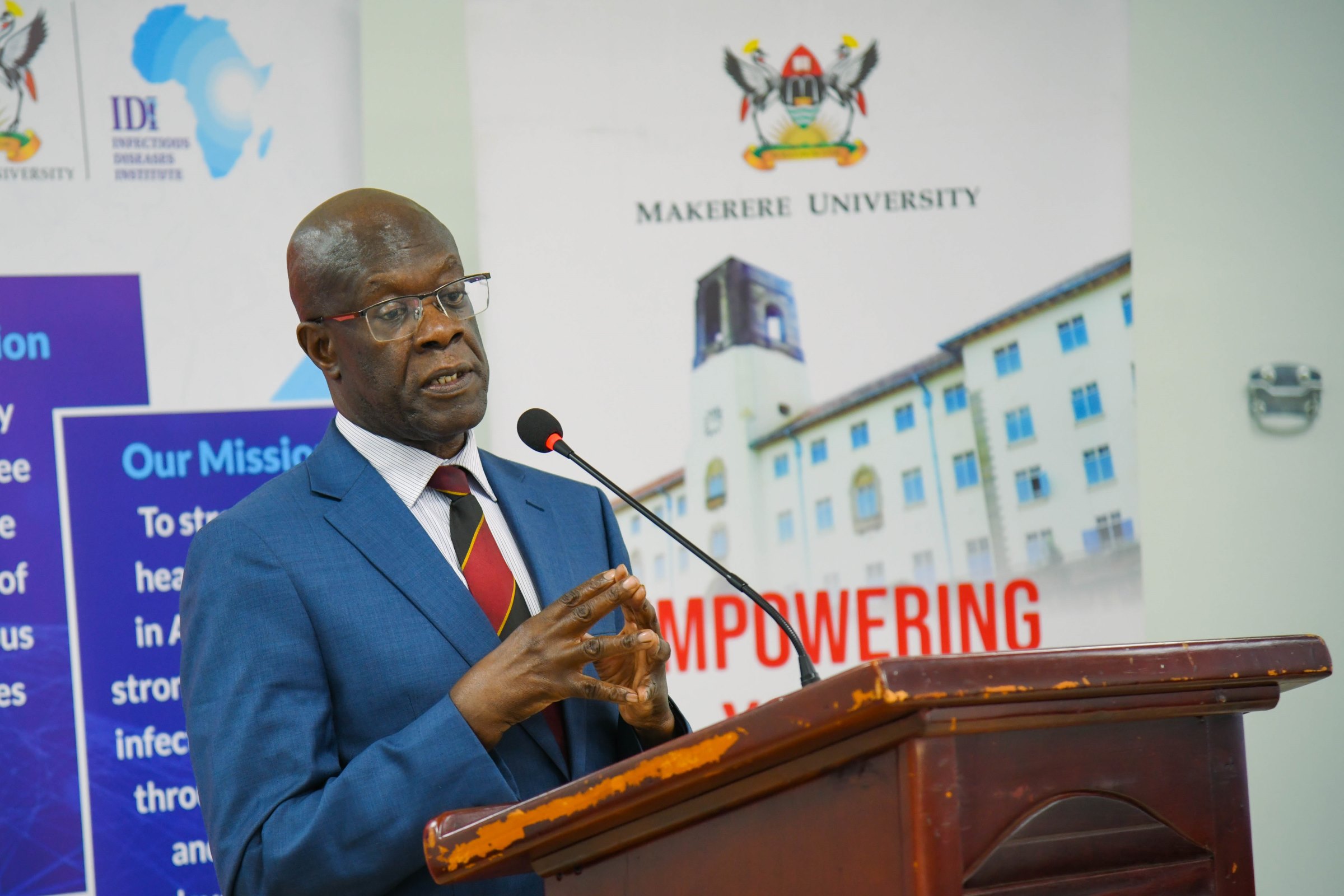
Prof. Sewankambo also addressed concerns about the future of clinical scholars at Makerere, arguing that rigid promotion policies risk driving away talented specialists who are vital to the university’s mission. Emphasizing that “it is wise people who change direction when it is necessary,” he urged university leadership to protect pathways that allow clinicians to grow, serve, and undertake PhDs without being pushed out of the system. His message underscored both the responsibility carried by the new fellows and the collective duty to safeguard the future of medical education and research.
Dr. Andrew Kambugu, Executive Director (ED) of IDI, warmly welcomed all guests and reflected on the Institute’s long-standing culture of adaptation and innovation in response to Africa’s evolving health challenges. He celebrated the presence of Prof. Nelson Sewankambo—honoring his legacy as a founder, mentor, and active research collaborator—and acknowledged the strength of Cohort One as a living example of what the program can produce.
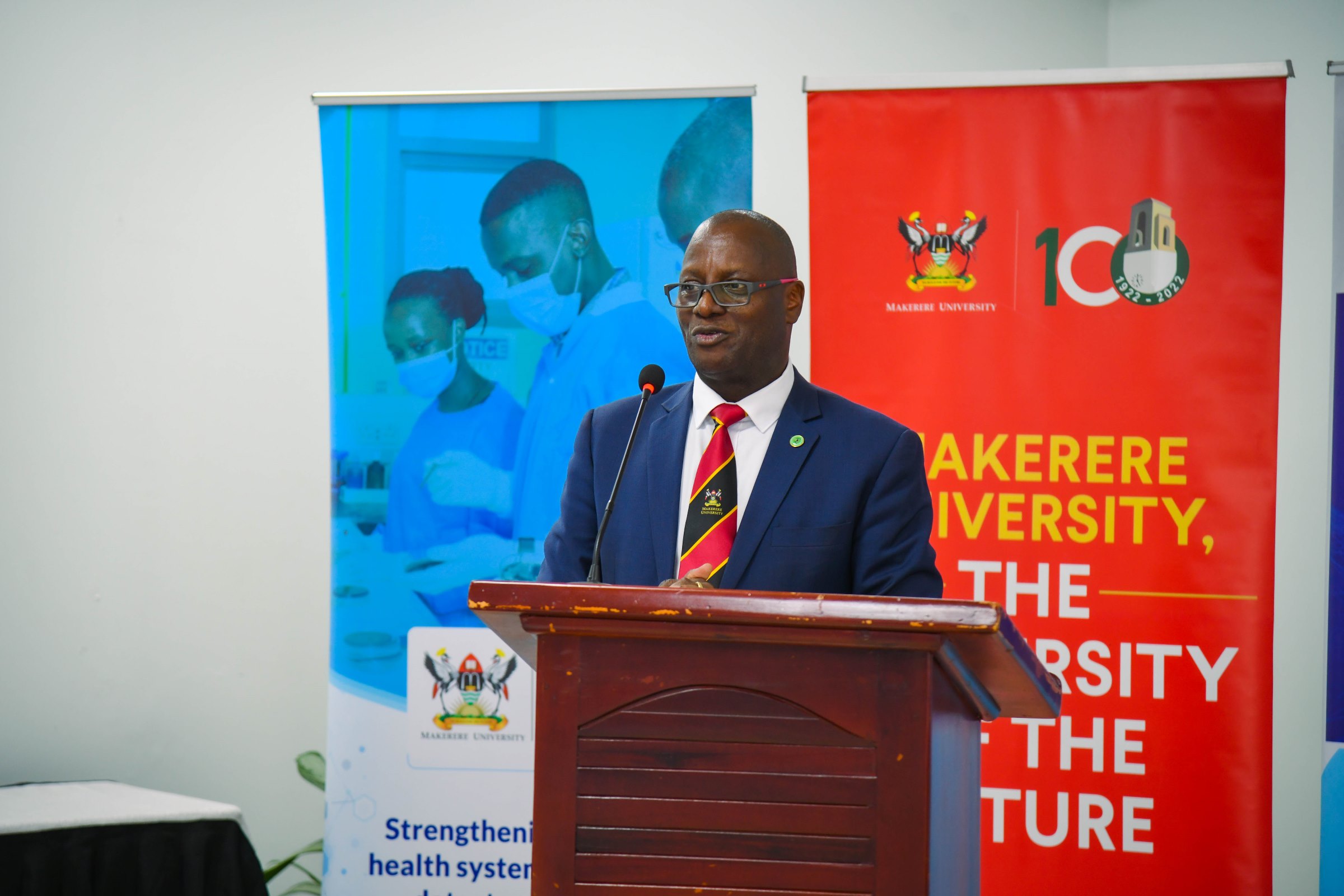
The ED emphasized that the Sewankambo Program stands on three pillars: rigorous selection, structured support with clear accountability, and strong alignment with national health priorities. He reminded the new fellows that IDI itself was born from the principle “adapt or perish,” and urged them to carry forward that spirit as they confront emerging threats like antimicrobial resistance and disease outbreaks across the continent. He also reflected on the power of mentorship, sharing personal experiences that illustrated how deeply mentorship can shape a scientific career. In closing, he expressed confidence that the five new fellows will honor the name they bear and continue building a legacy that inspires future generations.
Prof. Harriet Mayanja-Kizza reminded the newly selected fellows that while this achievement is significant, it marks only the beginning of a demanding but deeply meaningful journey. She expressed pride in the diversity of the cohort—drawn from ten African countries—and noted with delight that one of the brightest candidates emerged from the smallest country represented.
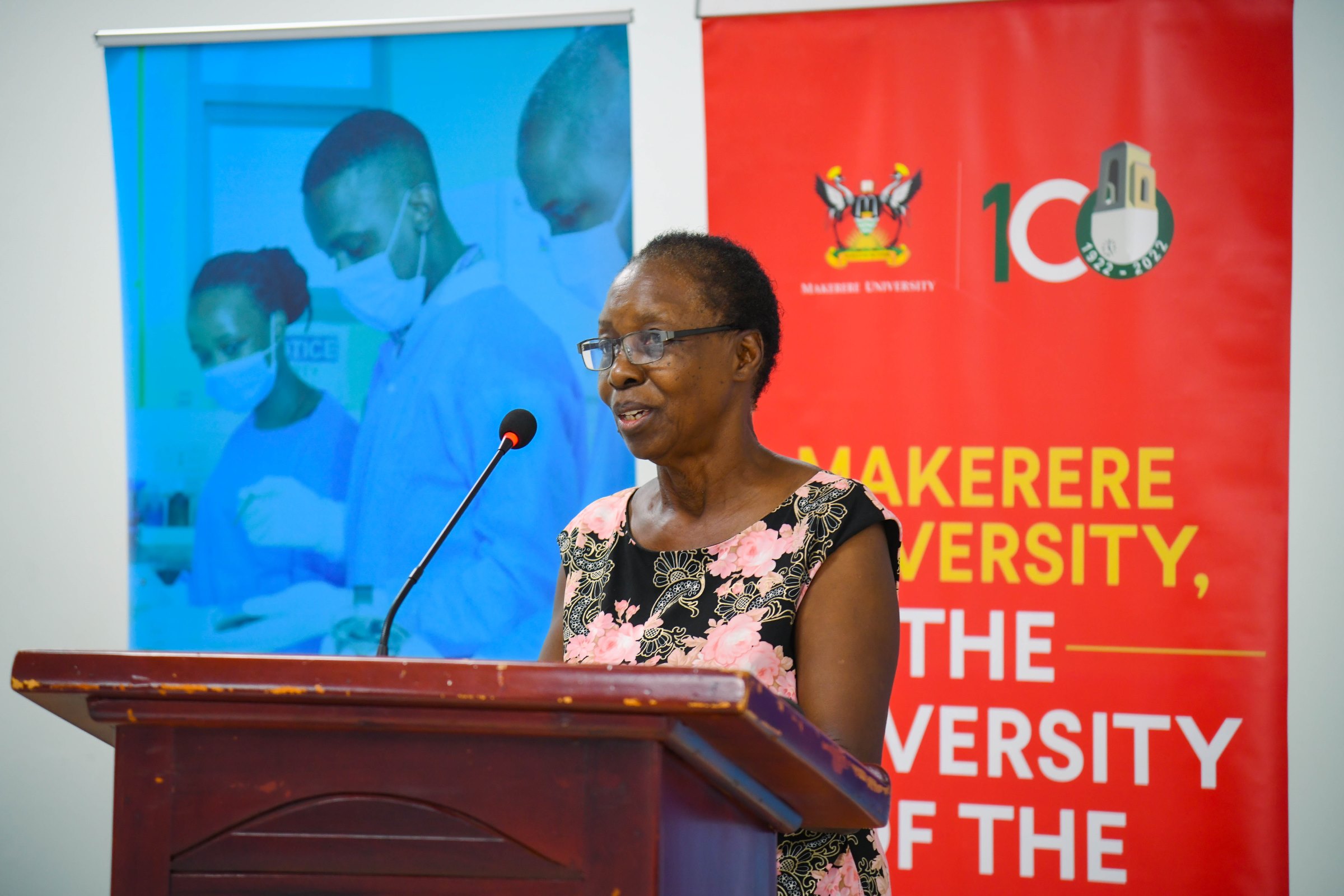
Reflecting on the evolution of impactful careers, she encouraged young people to embrace emerging fields such as bioinformatics, biotechnology, AI, molecular biology, and biostatistics, which she believes will define the future of science and global health. Prof. Mayanja spoke passionately about the diseases the fellows will tackle, highlighting the severe threat of antimicrobial resistance, the persistent burden of malaria, the dangers of resurfacing viral infections, and the transformative power of immunization. She urged the fellows to stay grounded, stay committed, and embrace the modern, data-driven tools now shaping global health research. In closing, she celebrated their potential to make a global impact and welcomed them formally into a field where their work will shape healthier futures for generations to come.
Prof. Ponsiano Ochama, one of the pioneers from the first cohort, reflected on the journey of the Sewankambo clinical scholarship from its early days in the “cookhouse” to the strong, structured program it has become. He recounted how the scholarship began as a mentorship-driven initiative aimed at nurturing future researchers and how sustained advocacy eventually removed barriers that once limited clinical scholars’ progression.
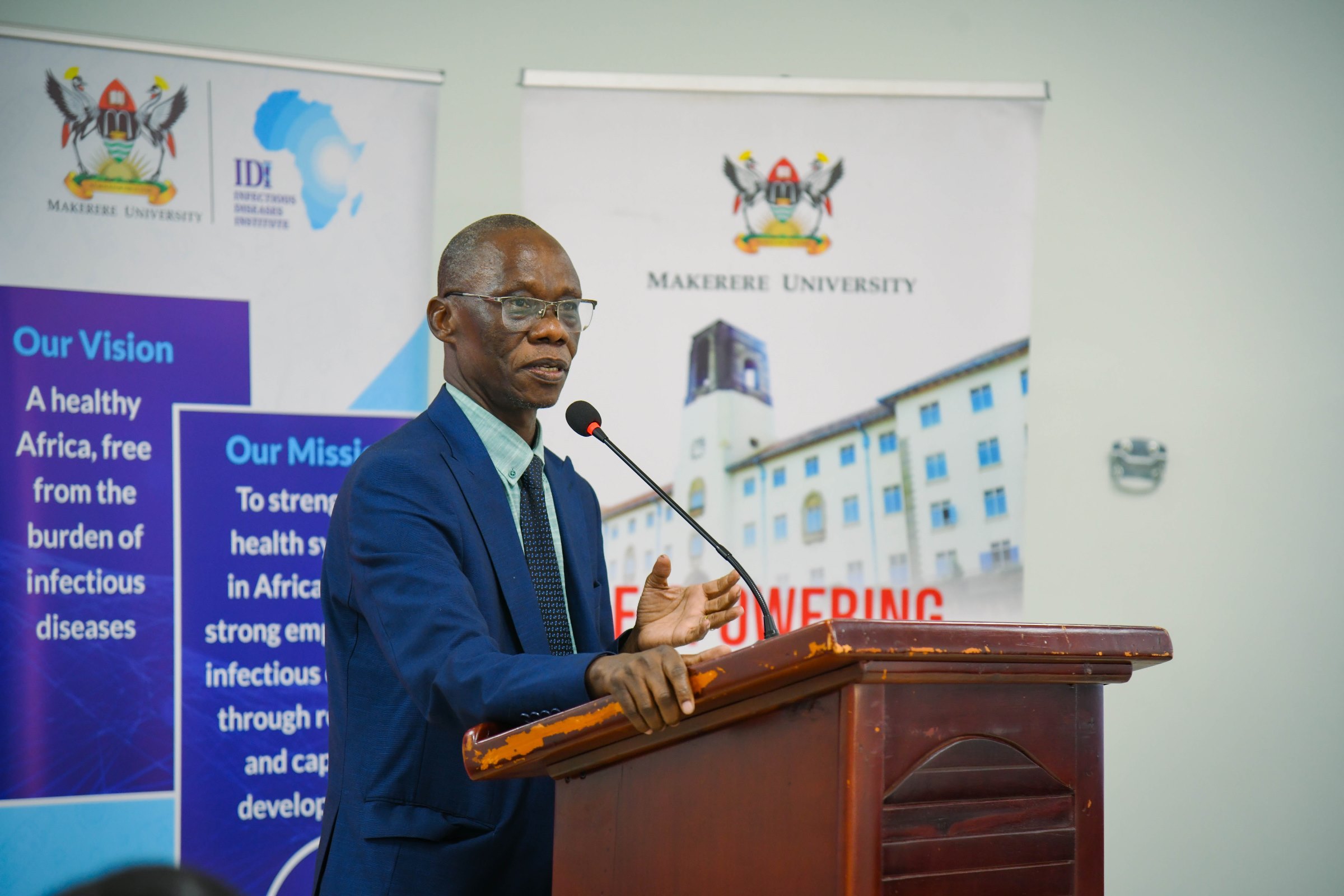
Prof. Ochama shared the impactful work he and his colleagues have since undertaken—highlighting, for example, a national study on hepatitis B mother-to-child transmission that shaped recent Ministry of Health policy. He encouraged the incoming cohort to embrace the program fully, assuring them that the “cookhouse” experience will transform them into strong, skilled scientists whose work will influence health policy and improve lives across the country.
Dr. Byonanebye Dathan, Deputy Head of the Global Health Security Department, outlined the strong rationale behind the Sewankambo Global Health Security Program, noting Africa’s rising burden of zoonotic and viral hemorrhagic fevers and the continent’s limited capacity for early detection and response. He emphasized that despite competing health priorities—HIV, TB, malaria, maternal health—there remain significant gaps in surveillance systems, workforce capacity, and research preparedness.
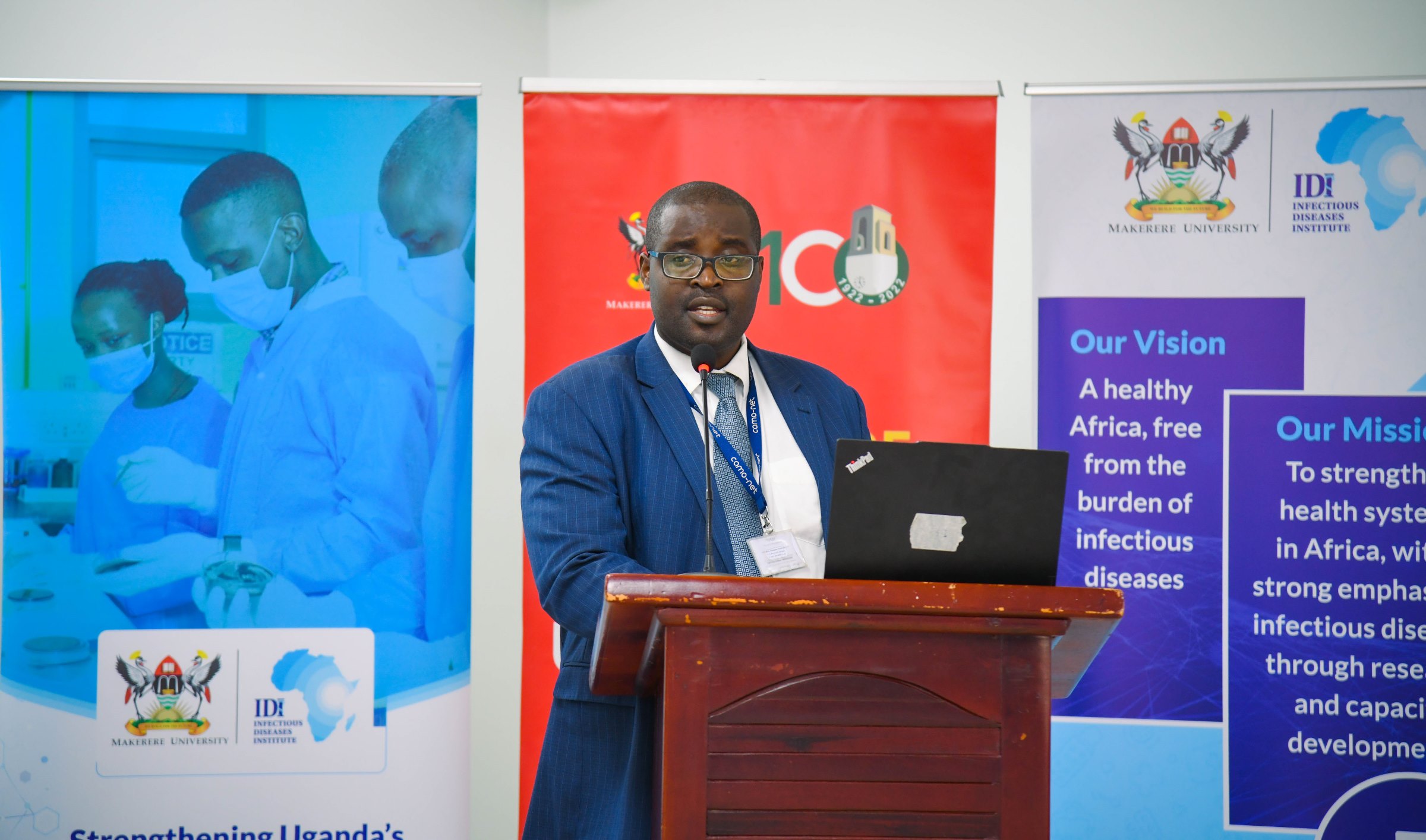
The program, he said, is designed to fill these gaps by strengthening research training, developing a skilled outbreak response workforce, and building a network of experts across Africa capable of generating evidence that directly informs policy and improves health systems. Dr. Dathan highlighted the rigorous selection process, the program’s alignment with WHO and national public health frameworks, and its integration of emerging technologies such as AI and machine learning. He affirmed that the fellows will receive structured mentorship, leadership development, and hands-on experience using existing data and real-world outbreak response systems—ensuring that their work leads not only to publications, but to meaningful impact across the continent.
Dr. Francis Kakooza, Acting Head of Global Health Security, traced the remarkable evolution of IDI’s Global Health Security work over the past decade, from its early CDC-funded surveillance efforts in 2015 to its expansion into biosecurity, AMR, epidemic research, policy development, and regional outbreak support. He highlighted IDI’s role in major national initiatives—including COVID-19 response, vaccination rollouts, risk management, lab accreditation, and the establishment of Regional Emergency Operations Centers—as well as its growing continental footprint through partnerships with Africa CDC, Mastercard Foundation, and Resolve to Save Lives.
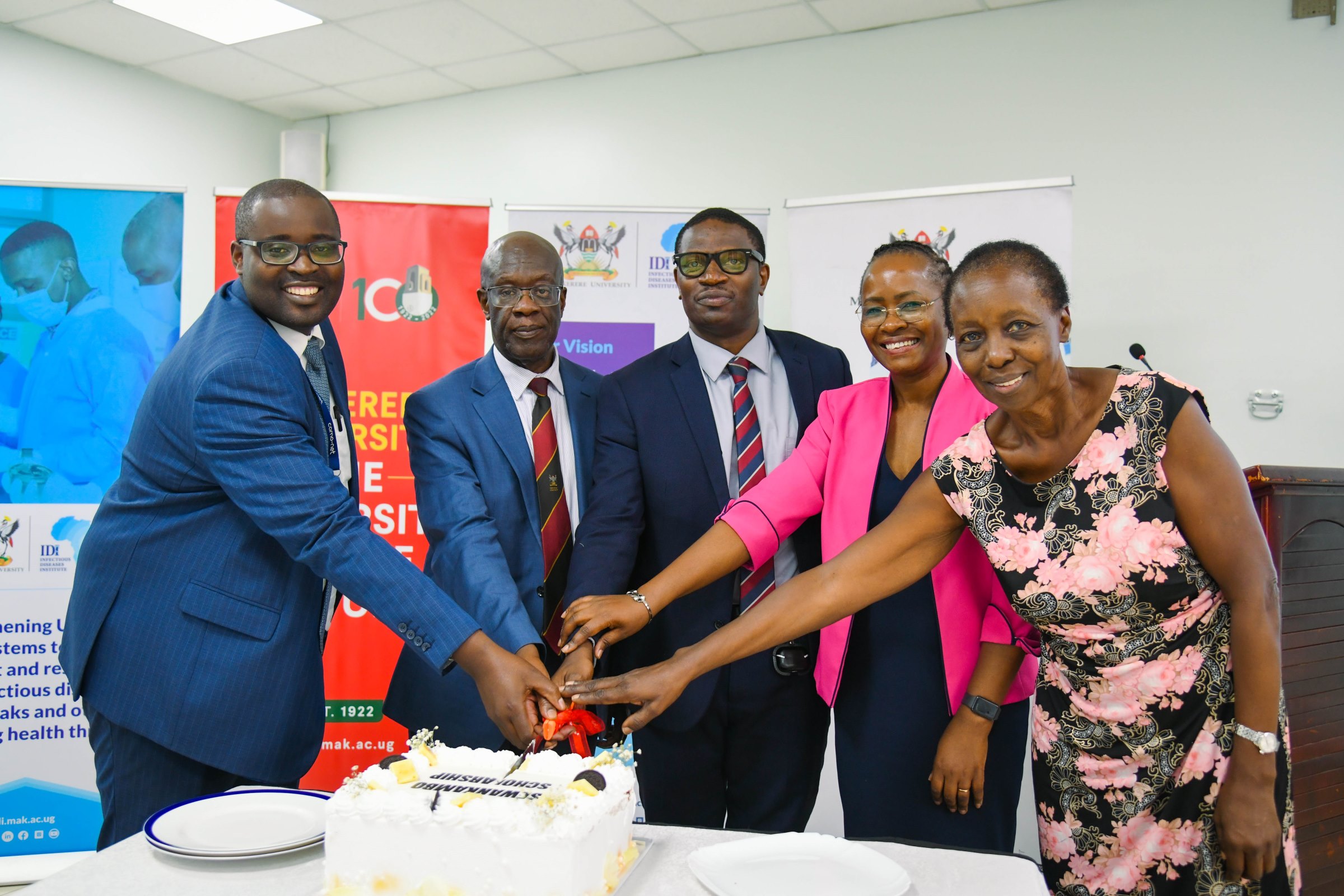
Dr. Kakooza emphasized that the launch of the Prof. Nelson Sewankambo Global Health Security PhD Program is the culmination of years of investment in strengthening African research capacity and supporting fellows whose work is already shaping policy. He expressed gratitude to all partners, mentors, and leaders who contributed to the program’s development, acknowledged the rigorous selection that yielded five fellows from ten countries, and reaffirmed IDI’s commitment to nurturing a new generation of scientists equipped to protect the continent from infectious disease threats.
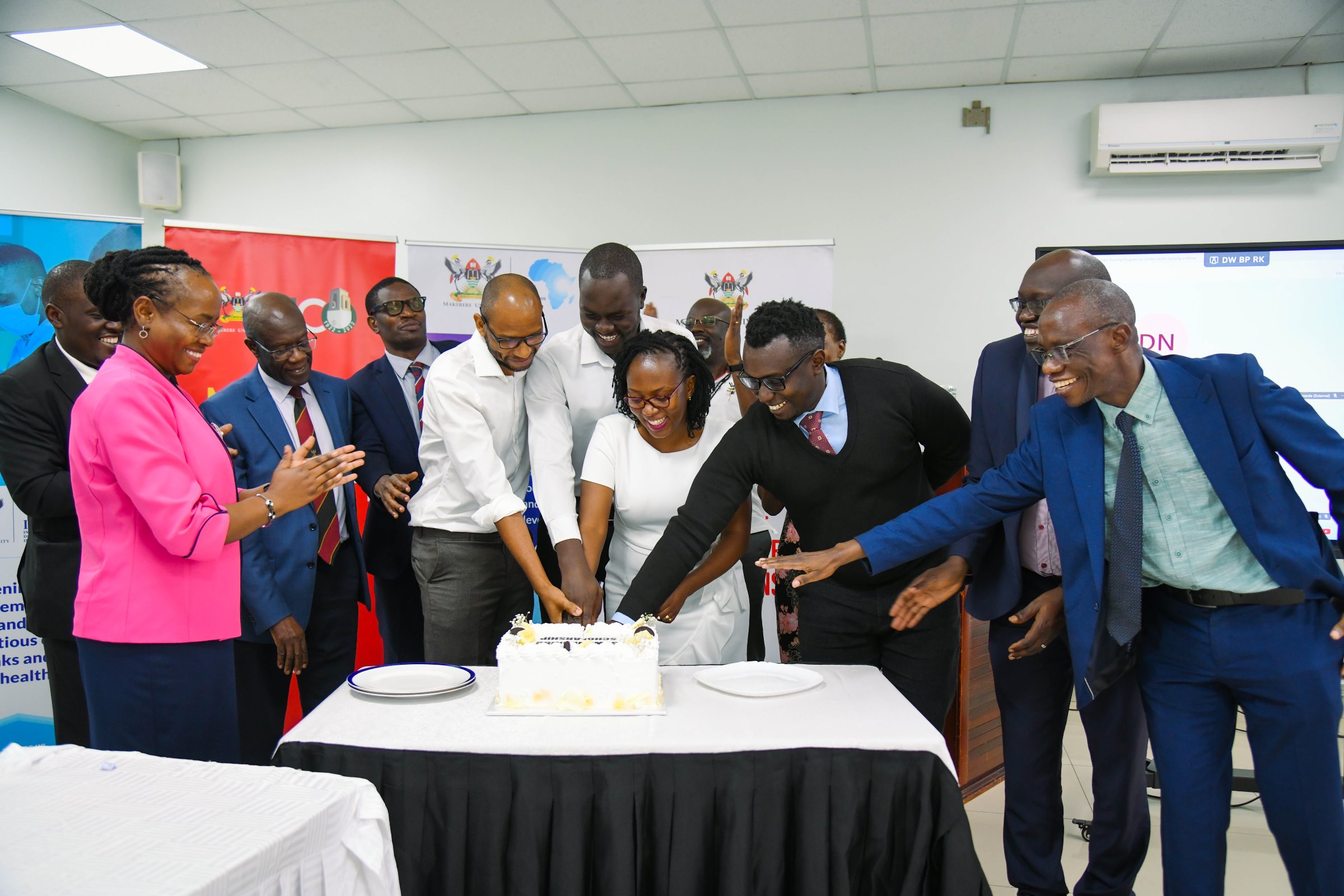
You may like
-


Mak hosts First African Symposium on Natural Capital Accounting and Climate-Sensitive Macroeconomic Modelling
-


Strengthening Global Partnerships to Advance Research, Innovation, and Graduate Training: Makerere University Hosts Delegation from the University of Warwick
-


Uganda has until 2030 to end Open Defecation as Ntaro’s PhD Examines Kabale’s Progress
-


Olivia Nakisita and the Quiet Urgency of Adolescent Refugee Health
-
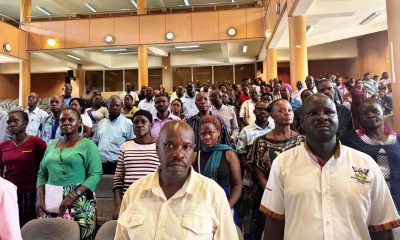

Support Staff Trained to Promote Safety of Students and Stakeholders
-
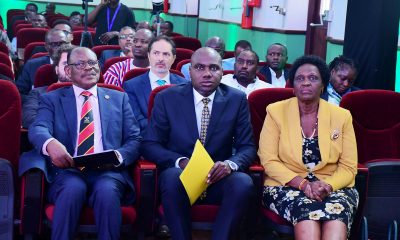

First African Symposium underscores the role of the Centre of Excellence for Africa Climate-Sensitive Macroeconomic Modelling
Health
Makerere University School of Public Health Graduates First Cohort of Cost-Effectiveness Analysis Short Course
Published
3 days agoon
February 20, 2026By
Mak Editor
Kampala, Uganda – The Makerere University School of Public Health (MakSPH) has marked a significant milestone with the graduation of the first-ever cohort of its Cost-Effectiveness Analysis (CEA) Short Course. The pioneering programme is designed to strengthen capacity in economic evaluation in Uganda and beyond.
The virtual graduation ceremony honored eleven (11) participants who completed the course. The cohort included professionals from academia, research institutions, government agencies, and non-state actors, reflecting the increasing demand for skills in economic evaluation across sectors.
The short course was developed and implemented by the Department of Health Policy, Planning, and Management (HPPM) in response to the increasing need for evidence-informed decision-making in a context of limited resources.
In her remarks during the ceremony, Assoc. Prof. Suzanne Kiwanuka, Head of the Department of Health Policy, Planning and Management (HPPM) at MakSPH, congratulated the inaugural cohort for completing what she described as a “critical and timely” course.
“With decreasing resources and rising demand for services driven by population growth and the emergence of high-cost technologies, decision-makers must make difficult choices,” she noted. “Cost-effectiveness analysis is no longer optional. It is central to conversations in the corridors of power.”
The CEA short course was designed to equip policymakers, researchers, and practitioners with both theoretical knowledge and practical skills in economic evaluation. Participants were introduced to key principles of health economics, costing methodologies, decision-analytic modelling, Markov modelling, sensitivity analysis, and interpretation of incremental cost-effectiveness ratios (ICERs).
According to Prof. Elizabeth Ekirapa, the course lead at MakSPH, this inaugural offering had been “a long time coming,” following years of discussions within the department about building local expertise in economic evaluation.
Delivered over 10 days through interactive online sessions, the course combined lectures, case studies, and hands-on modelling exercises using contextually relevant datasets. Participants were required to develop and present applied cost-effectiveness projects as part of their assessment, allowing them to translate theory into practice.

During the feedback session at the graduation ceremony, faculty emphasized the importance of clarity in defining study perspectives, selecting appropriate outcomes, and aligning research questions with modelling approaches.
Dr. Chrispus Mayora, one of the facilitators, highlighted the need to carefully select outcomes that directly reflect the intervention being evaluated. “When thinking about outcomes, ask yourself: Is this aligned with what I want to study? Interesting outcomes are not always the most appropriate ones,” he advised.
Participants were also encouraged to select modelling techniques such as decision trees or Markov models based on the research question and the nature of the disease or intervention under study.
Prof. Ekirapa described the graduates as “trailblazers,” noting that their feedback would shape future iterations of the course. “When you are the first cohort, you are like pioneers,” she remarked. “We are committed to improving this course to ensure it becomes a world-class programme.”
For many attendees, the graduation ceremony was a new experience, as certificates were awarded virtually an approach that participants welcomed as innovative and inclusive.
“Cost-effectiveness analysis enables us to maximise value for money,” noted Dr. Crispus Mayora of MakSPH. “It allows decision-makers to compare interventions systematically and ensure that limited resources achieve the greatest possible benefit.”
The programme aligns with Makerere University’s broader mandate to provide high-quality training that responds to national and regional development priorities. Participants who successfully complete the course receive a certificate signed by the Dean of the School of Public Health.
As the ceremony concluded, faculty encouraged continued engagement beyond the classroom. Graduates were urged to refine their project ideas and collaborate with the department in advancing research and policy discussions.
The successful completion of the first CEA short course marks an important step in building a cadre of professionals equipped to conduct rigorous economic evaluations. With plans to expand and refine the programme based on participant feedback, the HPPM department under MakSPH is positioning itself as a regional leader in health economics and policy analysis training.
Health
Uganda has until 2030 to end Open Defecation as Ntaro’s PhD Examines Kabale’s Progress
Published
5 days agoon
February 18, 2026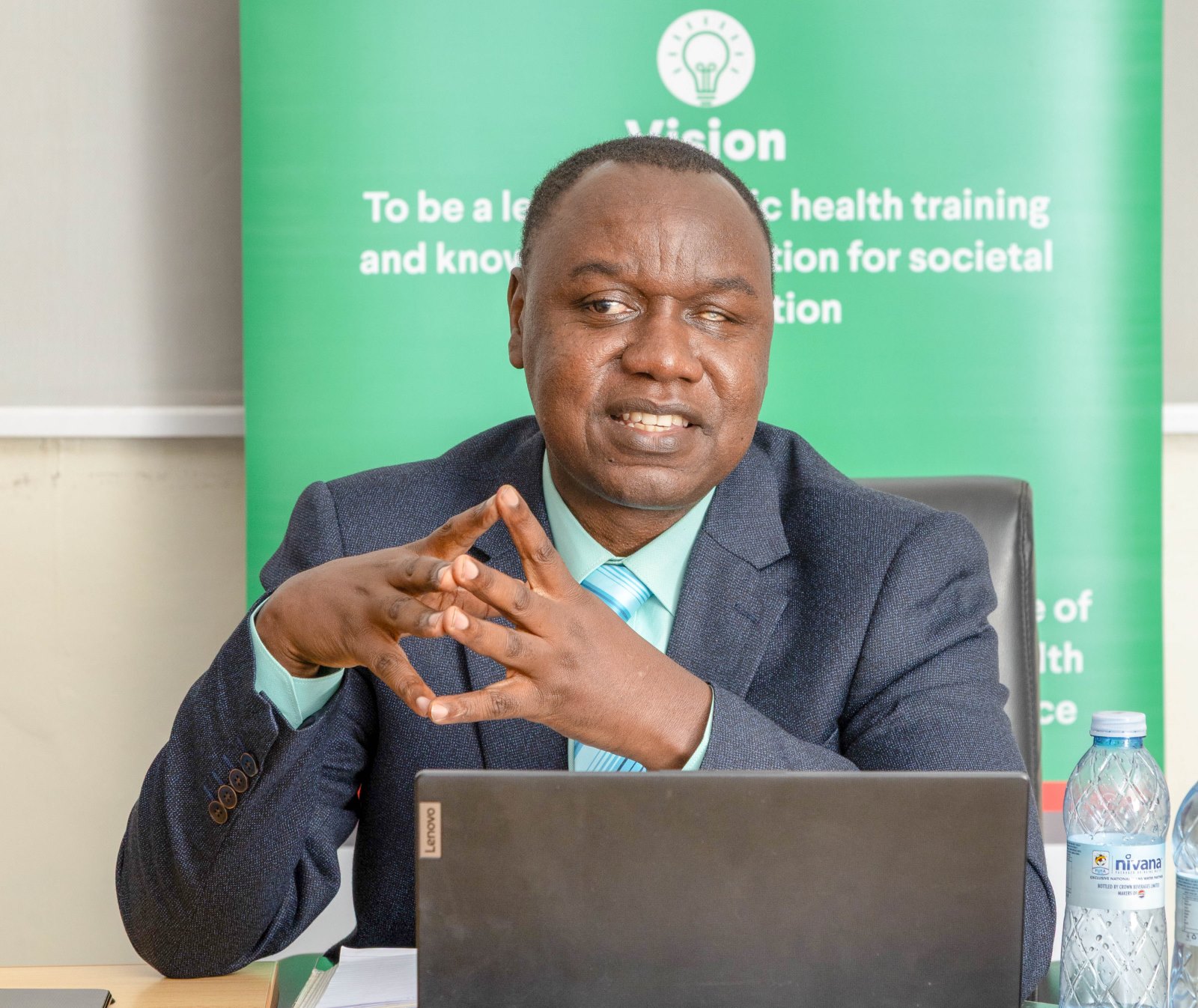
Silhouettes slip along narrow paths, farmers heading to their gardens, women balancing yellow jerrycans on their hips, children in oversized sweaters hurrying to school, and herders steering cattle toward open pasture, each movement part of a choreography older than memory. This is a quiet ritual in Kabale’s terraced hills, moments before the sun lifts.
The quiet procession to ahakashaka, or omukishaka, often sees figures moving quickly along familiar footpaths in the half-light, as children and adults walk with the urgency of habit. It is not a stroll but often a small, hurried run before daylight exposes what should be private.
It is February 2026, and the century-old Makerere University is celebrating its 76th Graduation Ceremony. The world paces and races toward artificial intelligence and digital revolutions. But some families still begin their day by rushing to the bushes for relief and concealment, while others engaged in economic activities such as gardening and grazing have no sanitation option other than using their surroundings to respond to the nature call!
The deadline to end open defecation is 2030. The science is settled, and the commitments are written into Sustainable Development Goal 6. Yet in parts of Kabale, only a small fraction of households is truly open defecation free.
In his PhD research, Dr. Moses Ntaro did not start with global targets or conference declarations. He began where the morning run ends, at the edge of the compounds, behind banana stems, along worn paths leading to Omukishaka. He asked whether students, equipped not with bricks but with conversation, follow-up, and persistence, could help communities replace that dash with something quieter: a door that closes.
What he found is both hopeful and unsettling. Change is possible. But dignity, like sunrise, should not require a run. And with 2030 approaching, time is no longer generous.
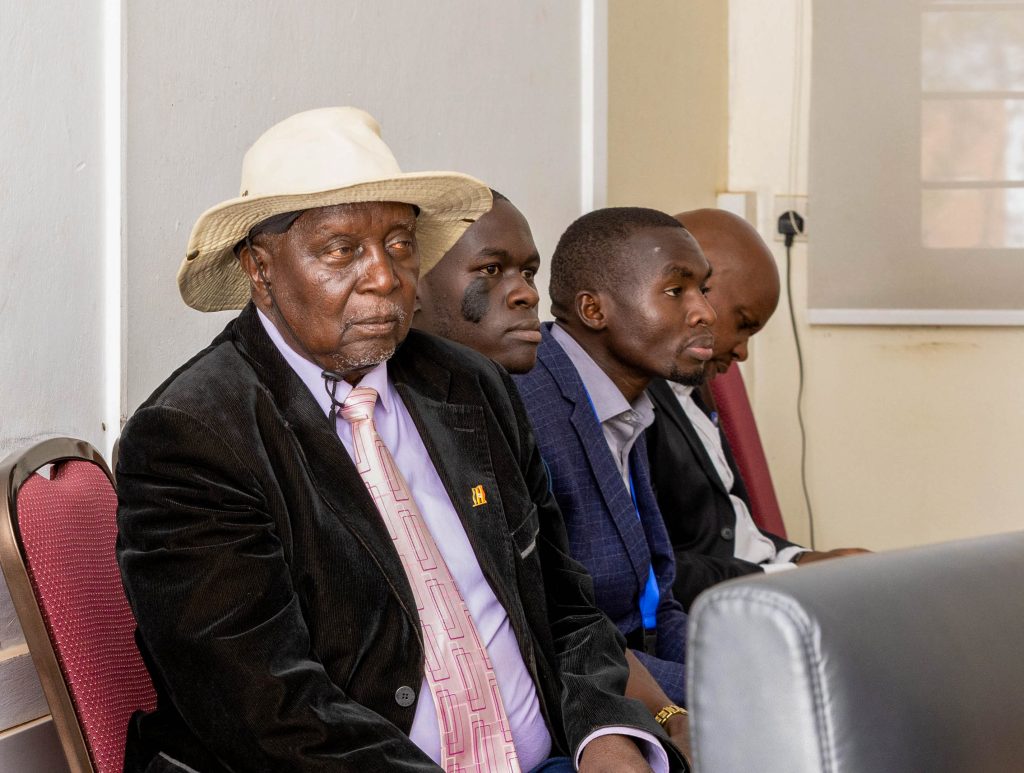
The Question That Would Not Let Him Go
Ntaro did not encounter open defecation as a statistic. While on foot and serving as Assistant Coordinator of Community-Based Education at Mbarara University of Science and Technology (MUST), he learned while supervising students placed in rural communities across southwestern Uganda. They walked villages together, conducted transect walks… and they observed.
“In my role as academic coordinator,” he explains, “students always took me on transect walks within the villages to show me how high open defecation practice was. The effect was evident in the high prevalence of intestinal infections we saw in health facility records.”
The link between sanitation and disease was not theoretical but visible in clinic registers. Diarrhea, intestinal worms, recurring infections among children, and more were all visible in the clinic registers.
Nineteen years ago, in 2007, Uganda adopted Community-Led Total Sanitation (CLTS), a strategy designed to trigger collective behavior change and eliminate open defecation. Progress, however, remained uneven. That same year, Ntaro was working as an Environmental Health Officer with the Water and Sanitation Development Facility under the Ministry of Water and Environment. He was three years away from completing his Environmental Health degree at Makerere University School of Public Health.
And so, the question emerged, to Ntaro, that, ‘If students are already embedded in these communities through COBERS placements, why are we not intentionally harnessing them to accelerate sanitation change?’
That question became his PhD.
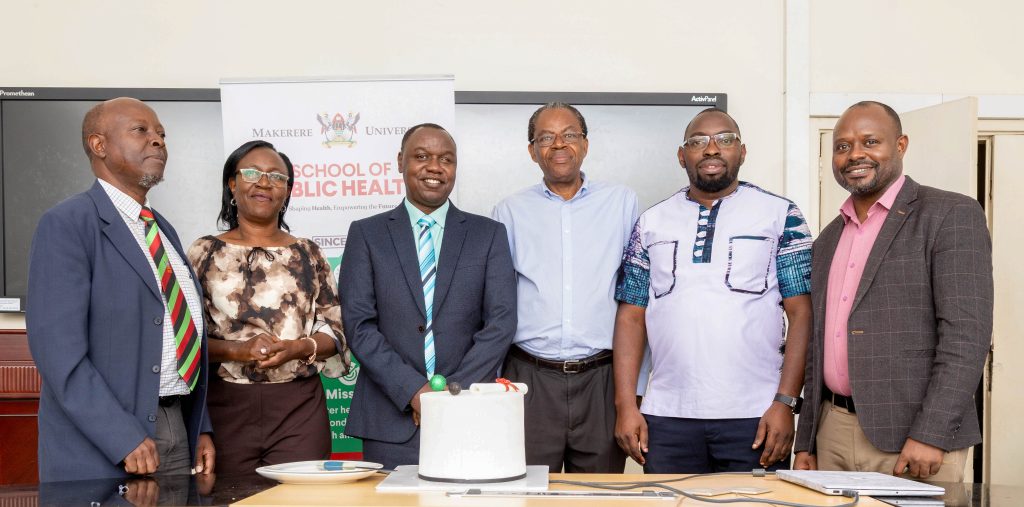
This is a Crisis That Should No Longer Exist
Globally, more than 350 million people still practice open defecation. Sub-Saharan Africa carries a disproportionate share. SDG 6, specifically Target 6.2, commits the world to ending open defecation and ensuring universal access to safe sanitation and hygiene by 2030. It prioritizes women, girls, and vulnerable populations. It speaks of dignity, of safely managed services, and of disease prevention.
We are four years away from that deadline. And in rural Kabale District, somewhere in southwestern Uganda, Ntaro’s research found that only 3 percent of households were truly open defecation-free.
Yes, three percent. His 2025 BMC Public Health study examined 492 residents. The average age was 49. Nearly 30 percent had no formal education. Most were women, the custodians of household hygiene and child health.
The determinants of Open Defecation Free (ODF) status were deeply behavioral.
Male-headed households had higher odds of being ODF. Households with clean compounds, clean latrine holes, and consistent handwashing practices were significantly more likely to sustain sanitation improvements.
Sanitation, Ntaro realized, is not only infrastructure but also power, memory, habit, and social expectation.
“Factors associated with ODF status were not just economic,” he notes. “They were behavioral and contextual.”
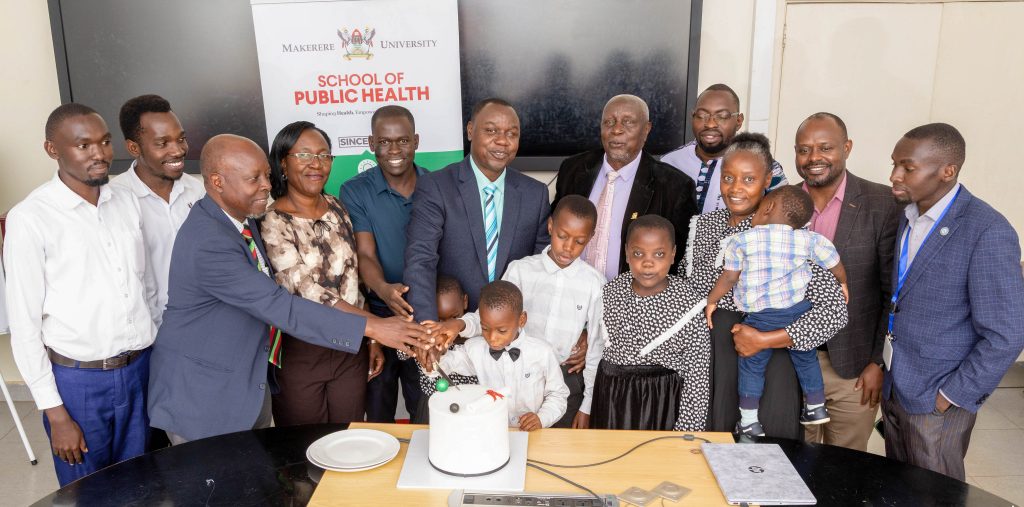
Why It Feels So Wrong to Still Discuss This
Talking about open defecation in 2026 feels unsettling for three reasons. First, it feels like a failure of basic dignity.
Think of an era of global connectivity and rapid technological advancement, and hundreds of millions still lack privacy. For women and girls, this exposes them to harassment, exploitation, and fear. Sanitation is not just about disease but safety.
Second, it feels like an avoidable health crisis. One gram of feces can contain millions of viruses, bacteria, and parasites. Open defecation directly fuels cholera, typhoid, diarrhea, and environmental enteropathy, a silent contributor to child malnutrition and stunting. The science is settled, and yet the practice persists.
Third, it feels like a poverty trap. Illness leads to lost productivity; lost productivity deepens poverty, and poverty limits investment in sanitation. The cycle continues.
“Open defecation is not simply a sanitation issue,” Ntaro says. “It is linked to poverty, nutrition, and broader development.”
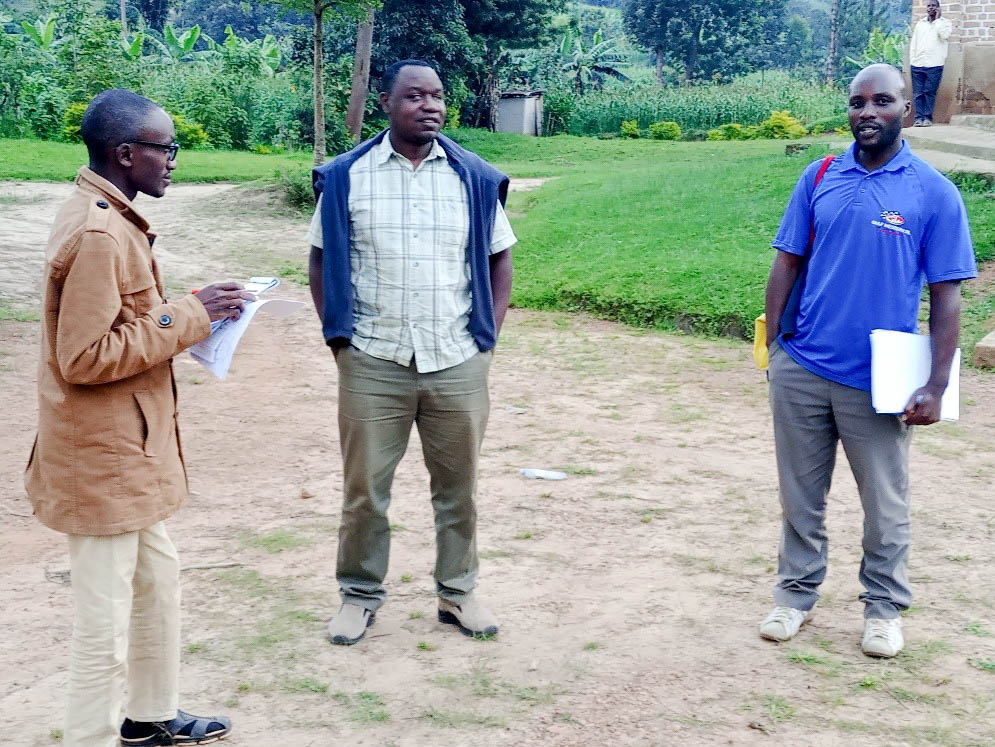
Testing a Different Approach
Ntaro’s doctoral thesis, “Effect of Student Community Engagement on Open Defecation-Free Status,” tested whether health profession students could effectively facilitate Community-Led Total Sanitation.
In some villages, traditional Health Extension Workers led the sanitation process. In others, trained students facilitated it under the COBERS (Community-Based Education, Research, and Service) model, which places medical trainees in community health facilities to learn through real-world practice, bridging classroom theory with primary care and public health work in rural settings.
Through this model, students led triggering, follow-ups, and community engagement. Open defecation declined. More households achieved Open Defecation Free status. And the cost per household was lower than in traditional approaches.
“Students were more effective,” Ntaro explains. “More households became open defecation-free compared to the traditional approach. And they were a cheaper human resource.”
But cost was not the real breakthrough. Presence was. Students stayed for weeks. They returned to check on latrines. They built trust. They kept coming back. Because sustainability, Ntaro argues, is not built in a single visit. It is built in repetition.
“There is a need for continued follow-ups and continued student engagement if long-term impact is to be realized.”
Change cannot be declared once and forgotten.
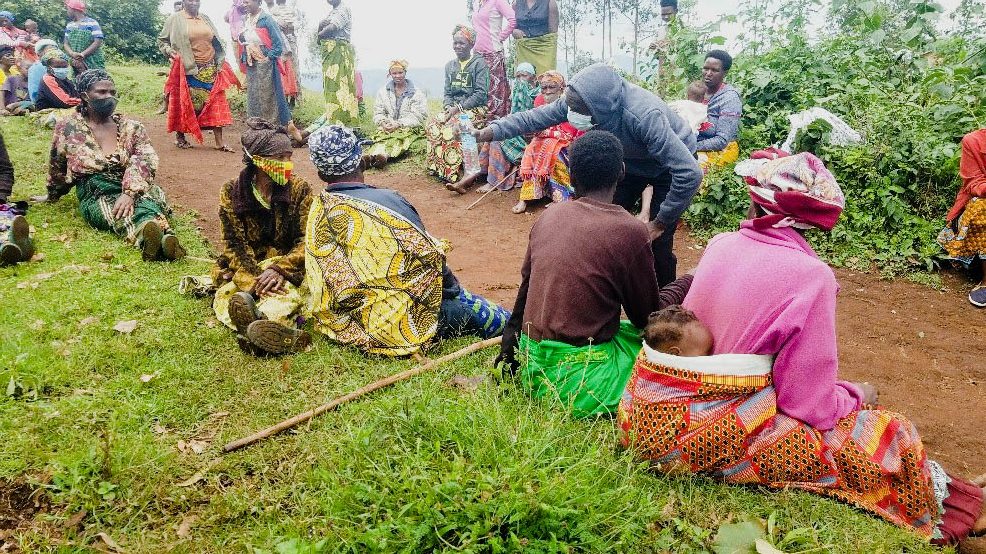
Behavior… and Not Just Bricks
Using the RANAS framework, Ntaro found that households that remembered to wash hands and kept latrines clean were far more likely to sustain Open Defecation Free status. In sanitation, behavior leaves evidence.
“Behavioral change interventions that empower communities,” he recommends, “such as CLTSH, should be strengthened to increase households with ODF status.”
In other words, building latrines is not enough, but communities must believe in them.
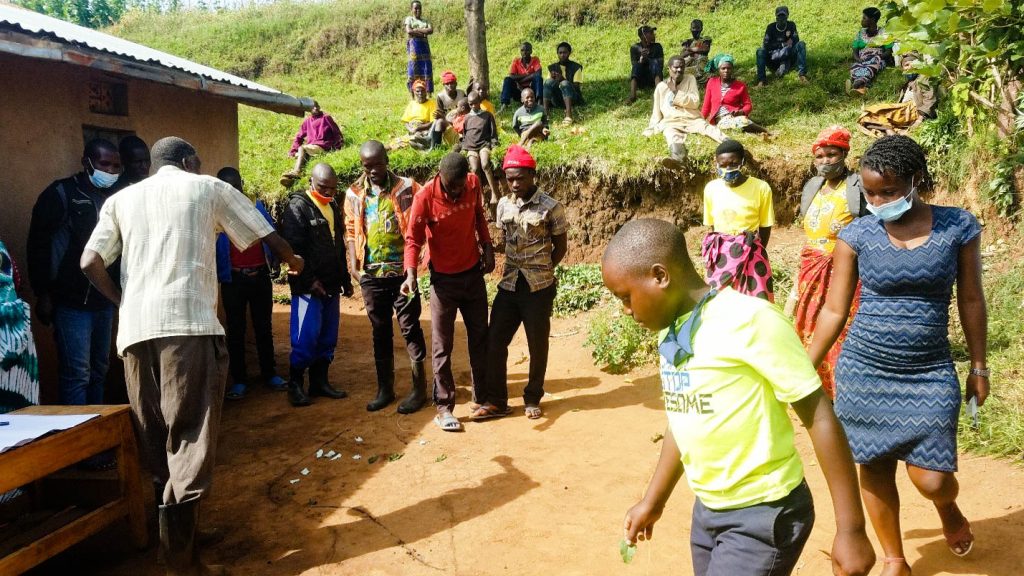
The Defense and the Countdown
On December 11, 2025, Ntaro defended his PhD. Examiners pressed him on scale and sustainability. Could student engagement be institutionalized? Could universities be embedded in district sanitation planning?
His answer was pragmatic: “Yes, but community-based education must be included in planning and budgeting.”
Four years remain to meet SDG 6.2. Four years to end open defecation and turn dignity from promise into practice. In 2026, this conversation should feel outdated. Instead, it remains urgent.
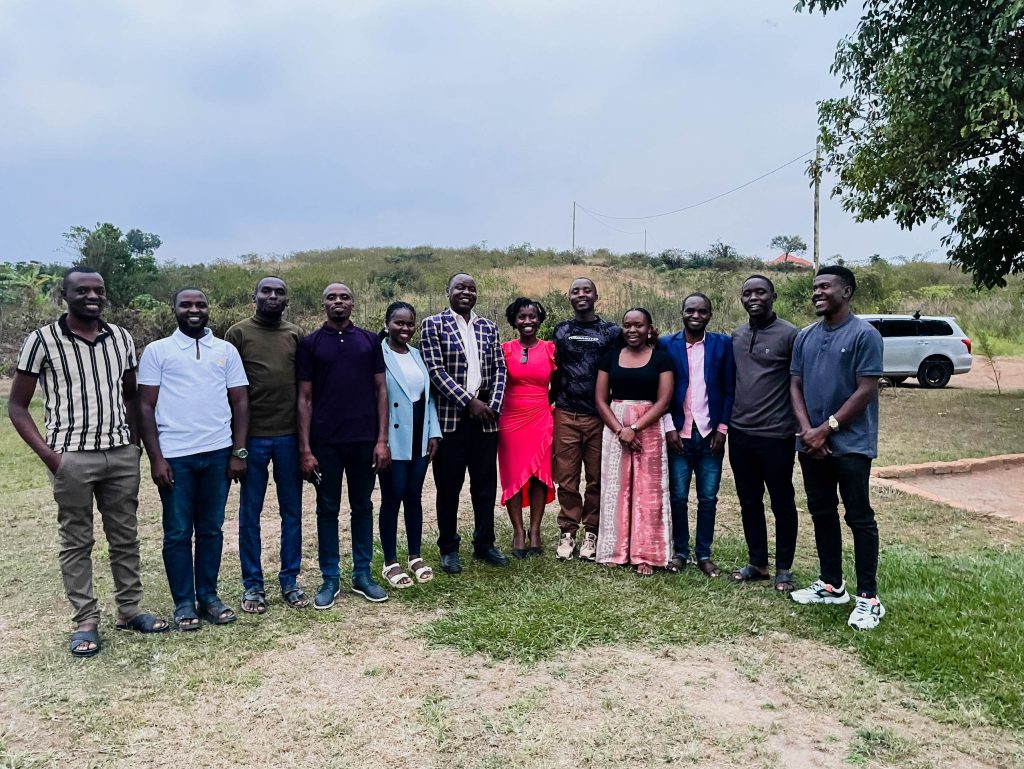
The Slow Work of Restoration
In Kabale, progress does not look dramatic. It looks like a latrine door closing firmly behind someone, a handwashing station with water and soap, a compound swept clean. It looks like a child who does not fall ill this month. Public health victories are often quiet.
As Makerere University approaches its 76th Graduation Ceremony, Dr. Ntaro Moses stands among its PhD graduands not with theory alone, but with evidence that change can be accelerated by reimagining who leads it. Students, he shows, are not only learners. They are the workforce, facilitators, and bridges between policy and path.
The hills of Kabale still wake under mist. But in more compounds now, privacy exists where bushes once stood open. Dignity is not restored in headlines, but one household at a time.
And with 2030 approaching, Ntaro’s work leaves a final, unavoidable question: if we already know how to end open defecation, if we already have the tools, the evidence, and the people, what, exactly, are we waiting for?
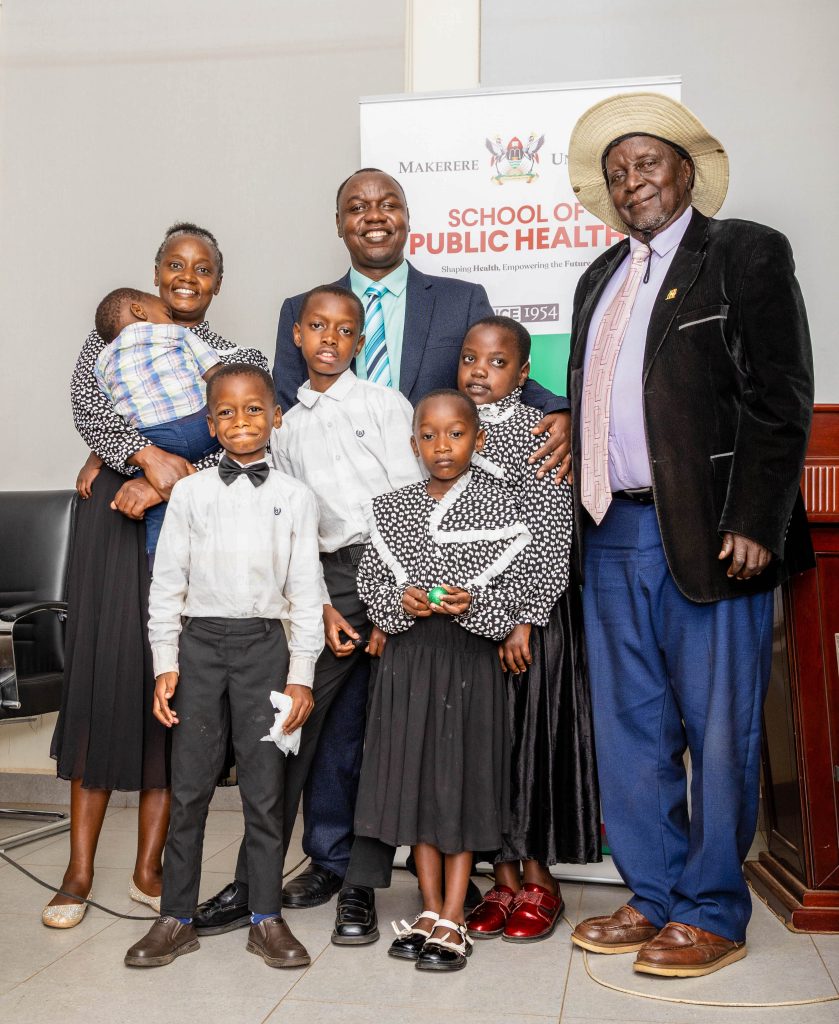
— Makerere University School of Public Health Communications Office, Graduation Profiles Series, 76th Graduation Ceremony
Health
Olivia Nakisita and the Quiet Urgency of Adolescent Refugee Health
Published
5 days agoon
February 18, 2026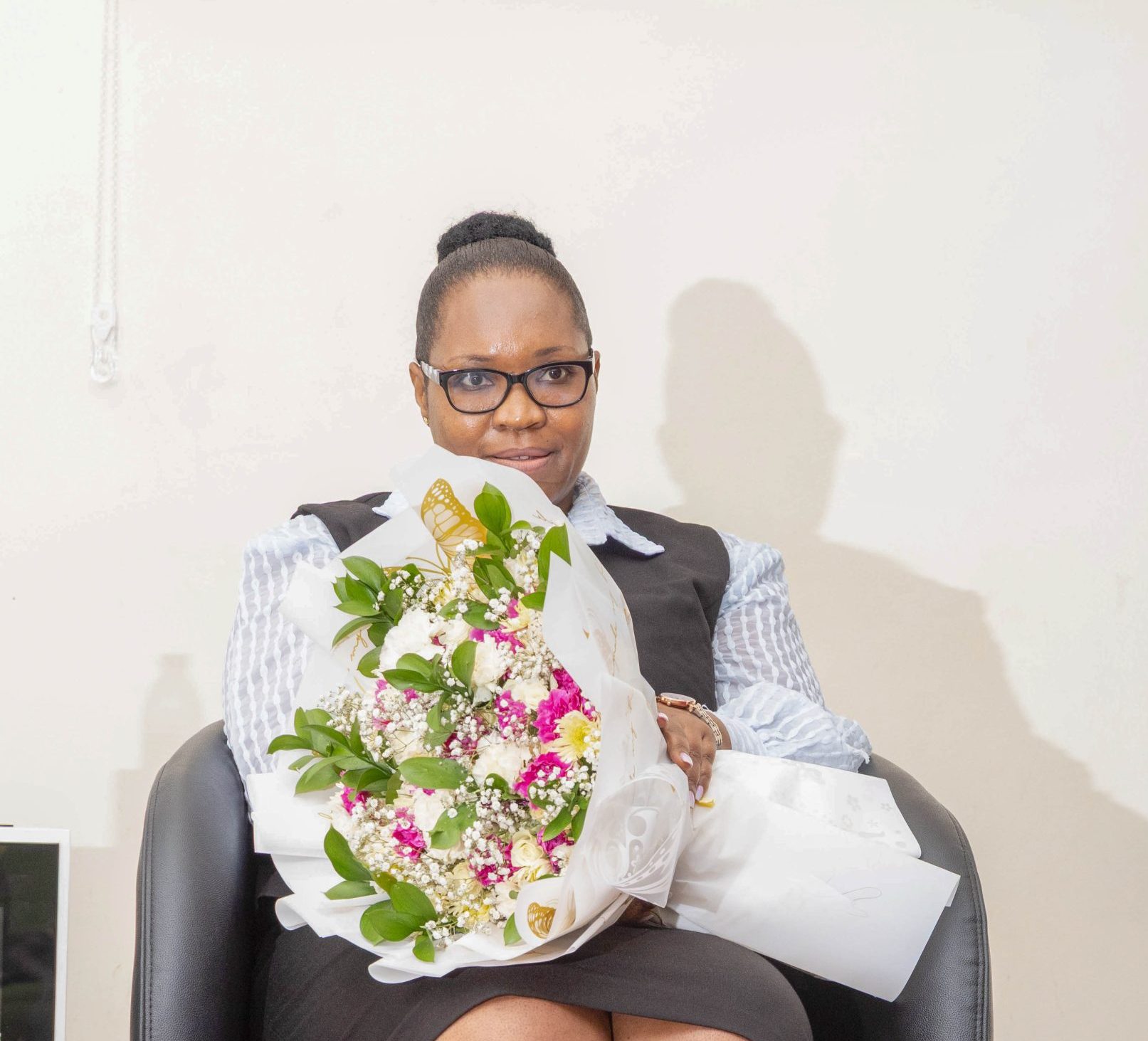
Kampala wakes early, but for some girls, the day begins already heavy. In Uganda, nearly three-quarters of the population is under 30, growing up happens fast, and often without protection. One in four Ugandan girls aged 15–19 has already begun childbearing, giving Uganda the highest teenage pregnancy rate in East Africa.
Layered onto this is displacement. The country hosts about 1.7 million refugees, many living in cities like Kampala, where survival depends on navigating systems not designed with them in mind. Also, nationally, 1.4 million people live with HIV, and 70 per cent of new infections among young people occur in adolescent girls, a reminder that vulnerability is rarely singular. When COVID-19 shut the country down, the consequences were immediate, with pregnancies among girls aged 15–19 rising by 25.5 per cent, while pregnancies among girls aged 10–14 surged by 366 per cent.
The numbers tell a story of youth, risk, and quiet urgency. But they do not tell it all. For years, Olivia Nakisita, a public health researcher,has followed how adolescent girls, many of them refugees, navigate pregnancy in Kampala: how far they must travel for care, how early they arrive or delay, and how often services that exist fail to meet them where they are. Her work lives at the uneasy intersection of policy and lived reality, where access does not always translate into care.
February 25th 2026, is the day that her work on whether urban health systems are truly ready for the youngest mothers they now serve will bring her to Freedom Square at Makerere University, where she will graduate with a PhD in Public Health.
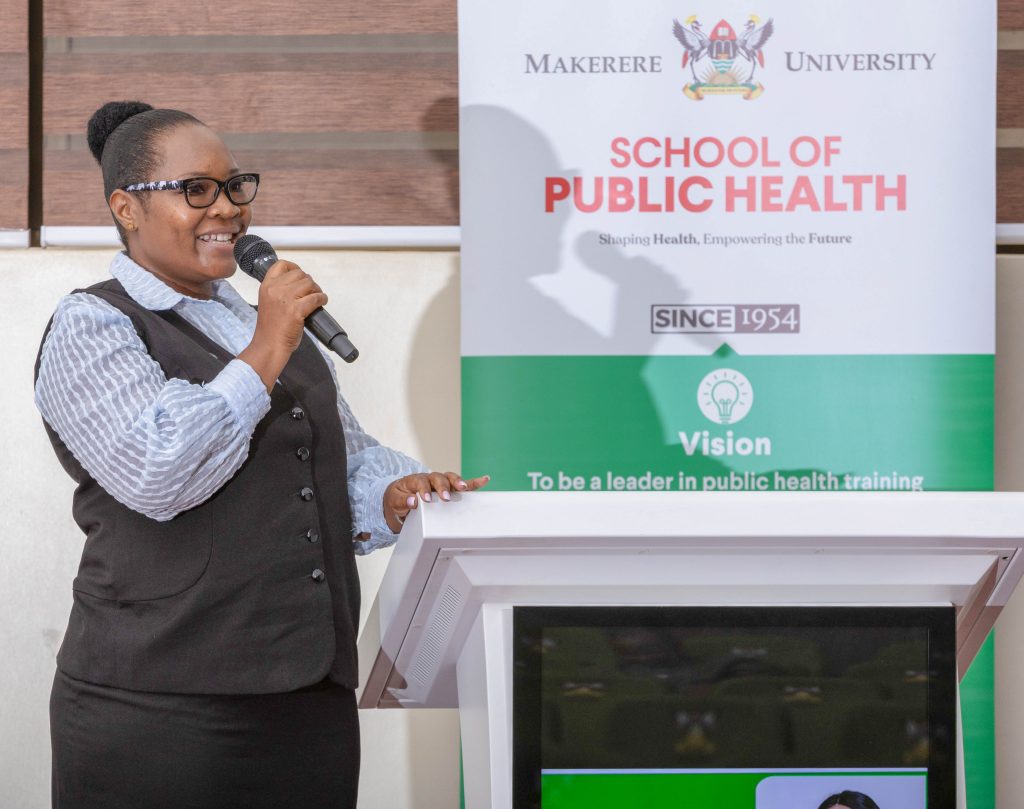
Her doctoral journey, focused on maternal health services for adolescent refugees in urban Uganda, has unfolded at the intersection of scholarship, community service, and the daily realities of young girls navigating pregnancy far from home.
The Work That Came Before the Question
Long before she began writing a PhD proposal, Olivia Nakisita was already immersed in adolescent health. As a Research Associate in the Department of Community Health and Behavioral Sciences at Makerere University’s School of Public Health, she taught graduate and undergraduate students, supervised Master’s research, and worked closely with communities. Beyond the university, she led New Life Adolescent and Youth Organization (NAYO), a women-led organisation she founded in 2021 to strengthen access to sexual and reproductive health and rights (SRHR) information and services for adolescents and young people.
It was through this community work that a troubling pattern began to surface.
“During our community service,” she explains, “we noted increasing teenage pregnancies, and we also noted challenges with access to maternal health services by teenage pregnant girls.”
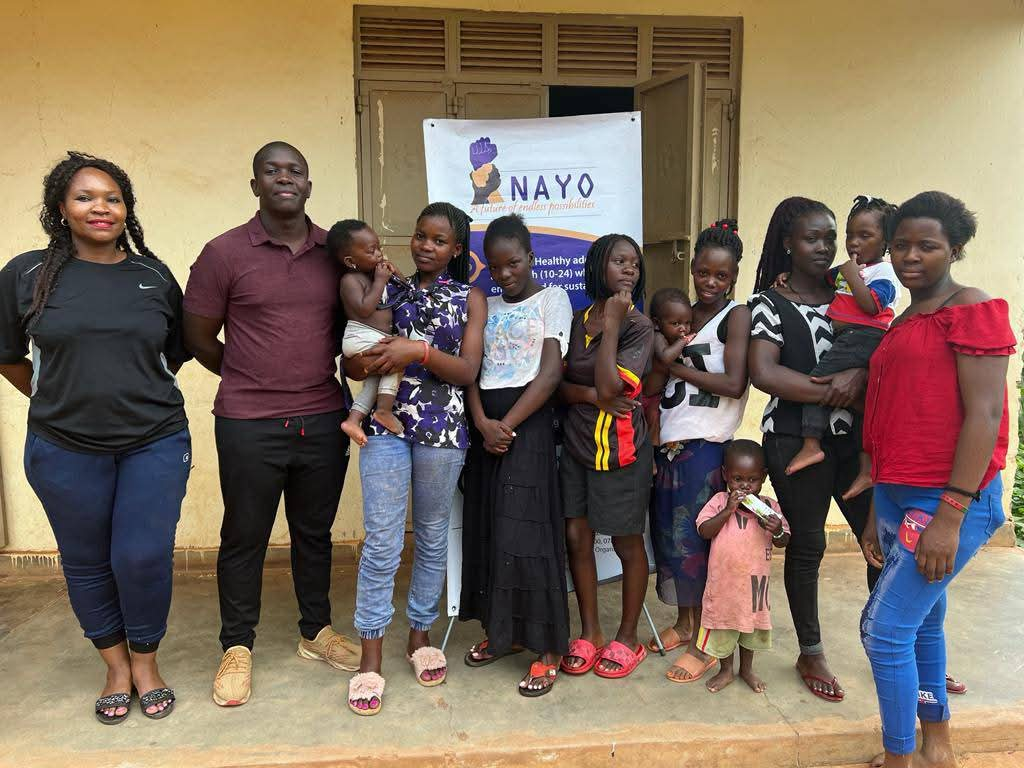
Among those girls were adolescents living as urban refugees in Kampala, young, displaced, often poor, and navigating pregnancy in a city not designed with them in mind.
For Nakisita, the concern deepened through her academic training in Public Health Disaster Management, one such programme that prepares multidisciplinary professionals with the technical expertise and leadership competencies required to plan for, mitigate, respond to, and recover from complex disasters through a public health lens. This programme sharpened Nakisita’s interest in how displaced populations survive within complex urban systems. Uganda’s integrated health model, where refugees and host communities are expected to use the same facilities, appears equitable on paper. In practice, it can be unforgiving.
“I got interested in understanding how these refugees who get pregnant manage to navigate the complexities of integration in host societies like Kampala,” she says. “This was driven by the desire to address their needs and to inform and evaluate existing refugee health policies.”
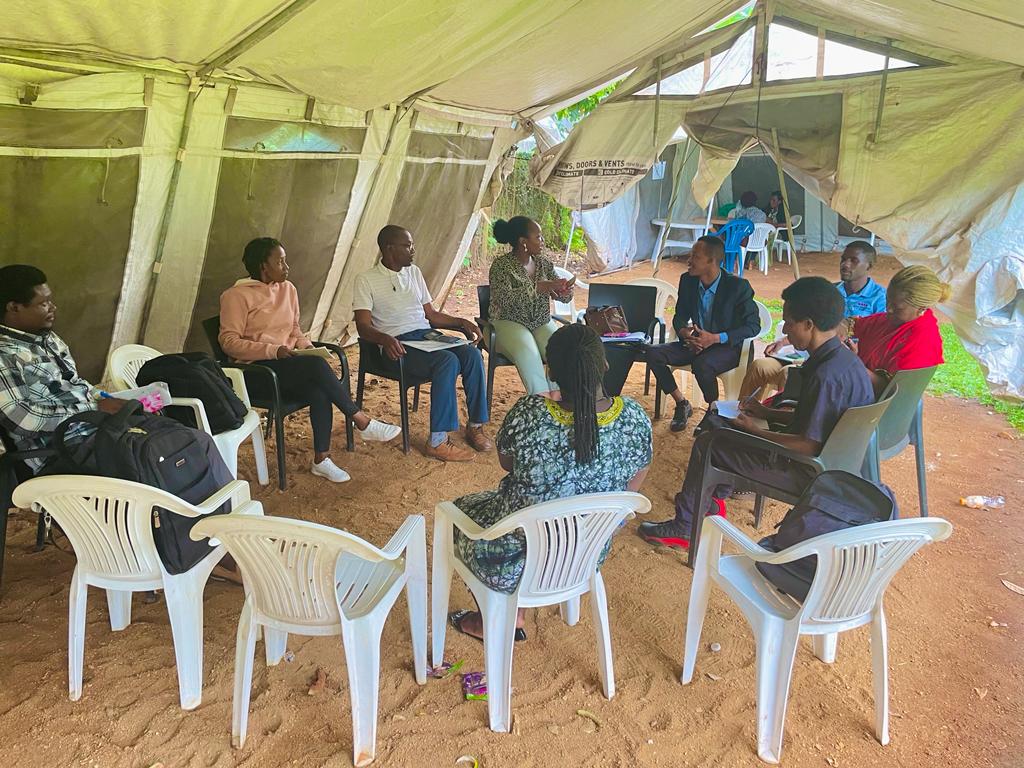
That desire became the foundation of her PhD.
Asking Hard Questions in a Crowded City
Her doctoral research, “Maternal Health Services for Adolescent Refugees in Urban Settings in Uganda: Access, Utilisation, and Health Facility Readiness,” was conducted in Kampala between November 2023 and August 2024. It combined quantitative surveys with qualitative interviews, engaging 637 adolescent refugees aged 10–19 years, alongside health workers and facility assessments.
Her findings showed high perceived access to maternal health services. Clinics existed. Services were available. Yet utilisation, particularly of antenatal care (ANC), lagged. “About three-quarters of the girls attended at least one antenatal visit,” she explains, “but only about four in ten attended in the first trimester.”
And that gap matters. Public health research shows that early and regular antenatal care allows health workers to detect high-risk pregnancies, initiate supplements such as iron and folic acid, monitor fetal development, and provide psychosocial support. Without it, risks compound silently.
By contrast, her study found that facility-based deliveries were remarkably high, with nearly all adolescent refugees (98.3%) giving birth in health facilities, suggesting that the system was reachable, but uneven.
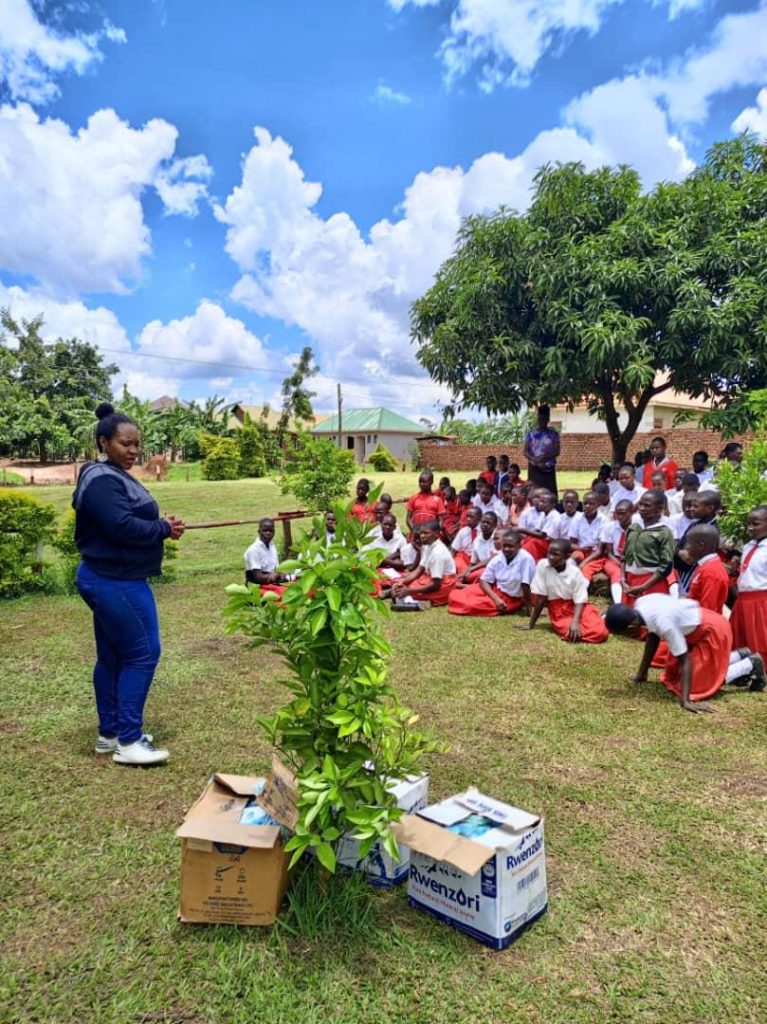
Where the System Falls Short
Her research went beyond utilisation to examine whether health facilities were actually ready to serve adolescent refugees.
Findings show that lower-level health centres in Kampala were moderately prepared to offer adolescent-friendly maternal health services. Some staff were trained. Some spaces existed. Despite this, critical gaps remained. For instance, facilities lacked essential equipment and supplies. Non-provider staff were often untrained. Separate, private spaces for adolescents were limited. Language barriers complicated care. Overcrowding strained already stretched health workers.
In her qualitative interviews, health workers expressed empathy and willingness to help. Many relied on peer educators and community health workers to reach adolescent refugees. But good intentions were not enough.
“They recommended training of healthcare workers, translators for refugees, and improvement in the availability of essential drugs, supplies, and equipment,” Nakisita notes.
She notes that readiness is not just about infrastructure but about the people, preparation, and priorities.
Research with an Emotional Cost
For Nakisita, working with adolescent refugees required care, not only methodologically, but emotionally.
Finding participants in Kampala was itself a challenge. Unlike settlement settings, urban refugees are dispersed, often invisible. Ethical considerations were constant. Adolescents who had given birth were legally considered emancipated minors, but their vulnerability remained.
Though the thesis focused on systems rather than personal narratives, Nakisita’s earlier work with adolescents informed every decision she made. It shaped how she framed questions, interpreted data, and weighed policy implications. This was not detached research, but careful, deliberate, and grounded.
The Scholar Formed by Continuity
Nakisita’s PhD sits atop more than 18 years of experience in training, research, and community service. She is an alumna of Makerere College School (UCE), 1996 and Greenhill Academy Secondary School (UACE), 1998, a long journey through Uganda’s education system before her Diploma in Project Planning and Management at Makerere University completed in early 2000s.
She would later return eight years later to Makerere University for her Bachelor’s degree in Social Sciences and a Master’s in Public Health Disaster Management, and now a PhD in Public Health.
Her academic rigor is reflected in extensive training across SRHR, impact evaluation, research methods, ethics, disaster resilience, and humanitarian health. She has presented at regional and international conferences and published in peer-reviewed journals on adolescent health, refugee maternal care, gender-based violence, and health systems readiness.
As a PhD student, she supervised three Master’s students to completion, with another currently progressing, quietly extending her influence through mentorship.
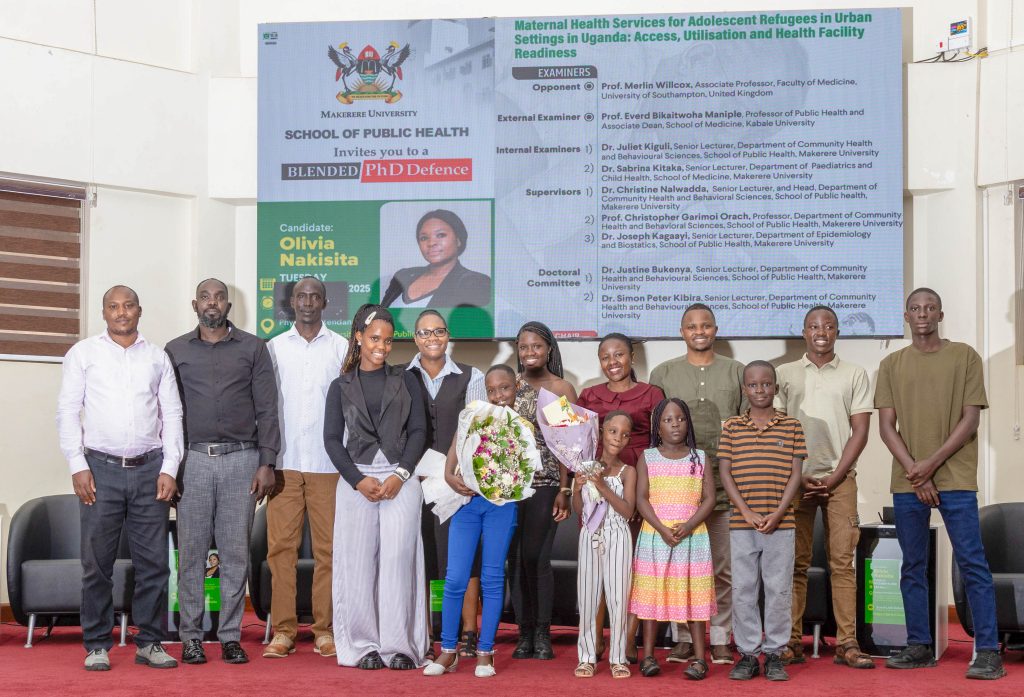
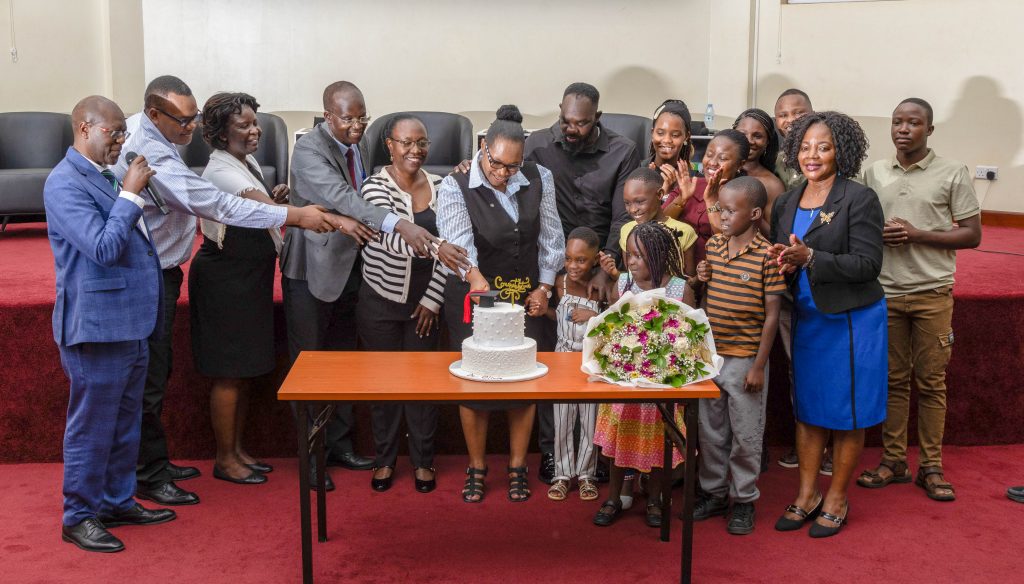
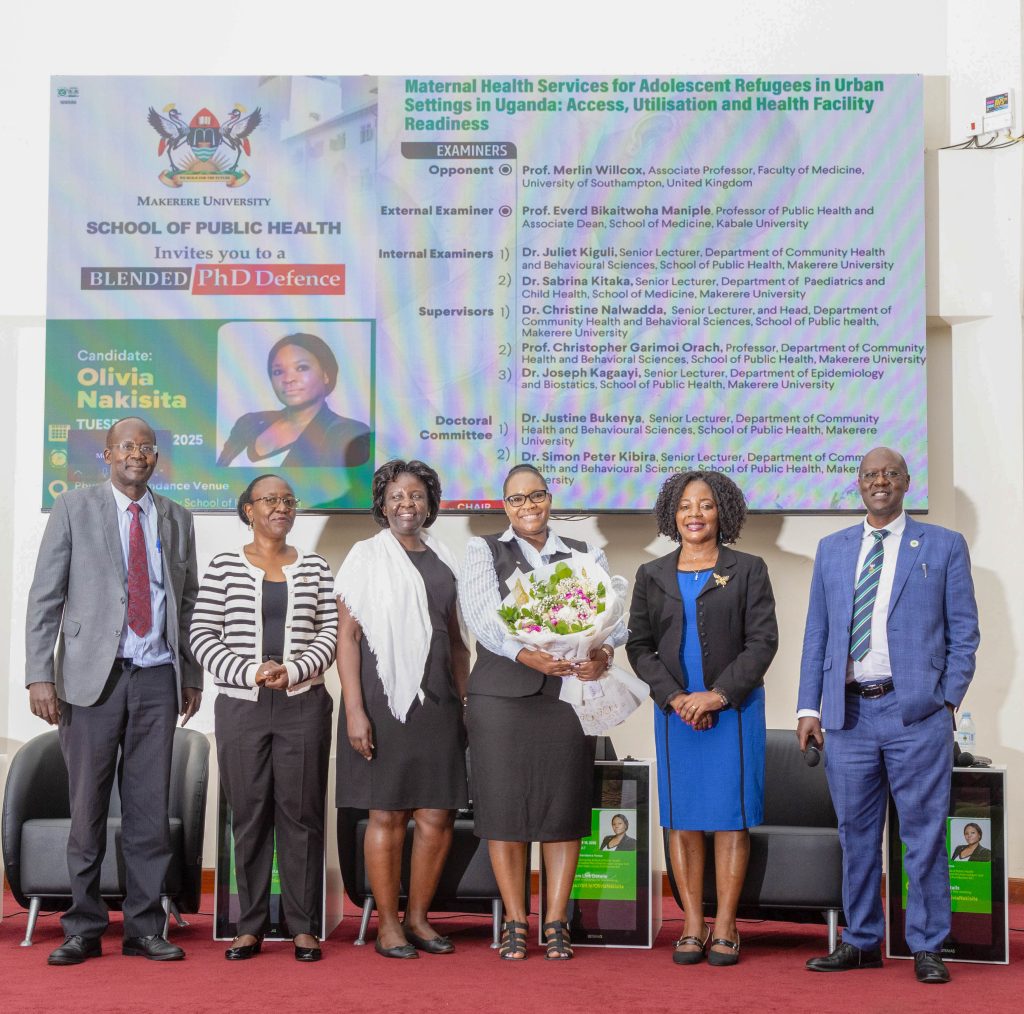
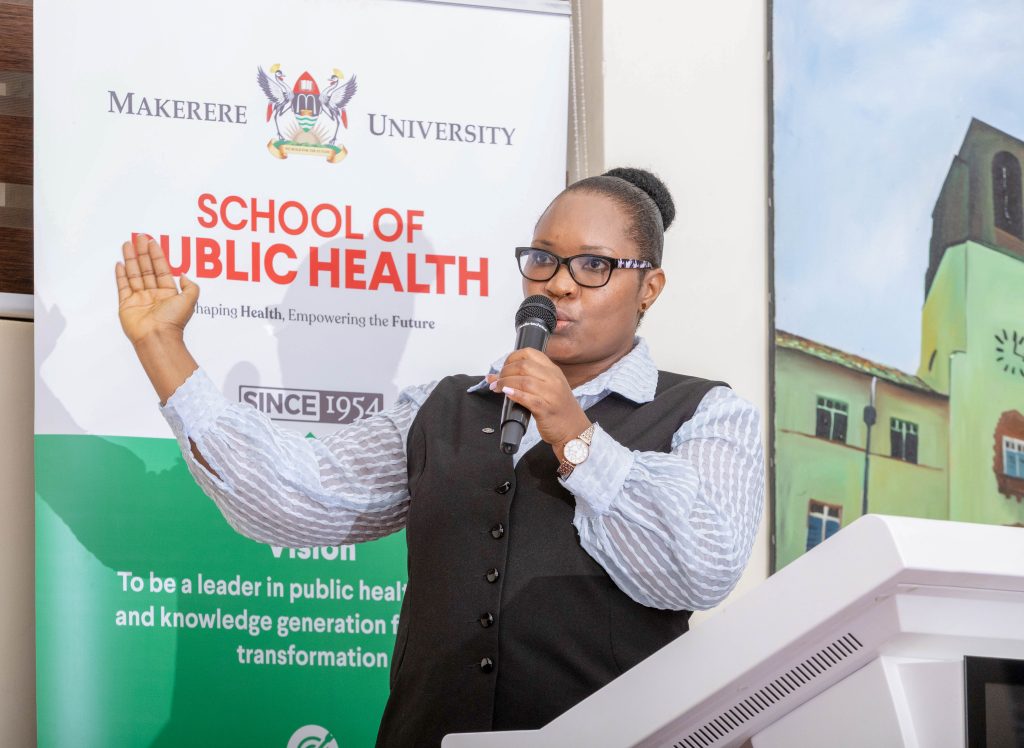
When Evidence Demands Action
If policymakers were to act on one lesson from her research, Nakisita says; “Emphasis should be given to maternal health services for adolescents.” “They are high-risk mothers,” she adds.
Her findings call for targeted community-based interventions, outreaches, home visits, and financial support for adolescents who cannot afford prescribed drugs, delivery requirements, or critical tests like ultrasound scans.
They also call for health systems to move beyond one-size-fits-all models, recognising that age, displacement, and poverty intersect to shape how care is accessed and experienced.
Now that her PhD is complete, Nakisita plans to translate research into action. Several papers from her study have already been published. A policy brief is planned to influence decision-making in urban and humanitarian health settings.
When asked what she would say directly to adolescent refugee girls navigating pregnancy in unfamiliar cities, her response is simple and direct.
“If it happens,” she says, “as soon as you find out, go to the nearest health facility and seek care. Always return for the visits as asked by the health worker. Ensure that you deliver in a health facility with a skilled health worker.”
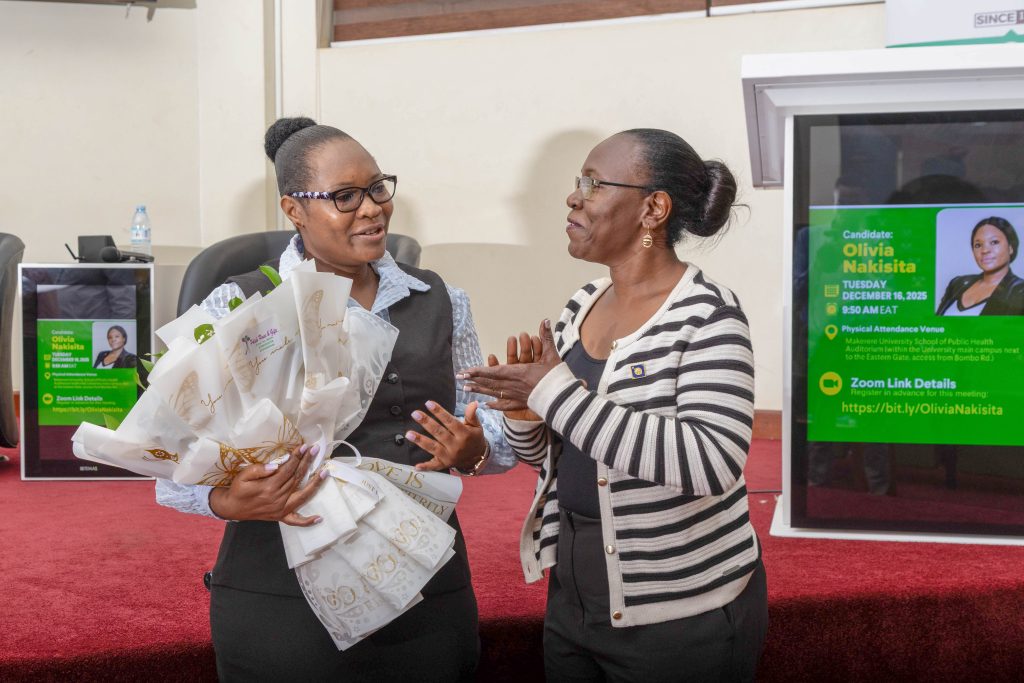
Arrival, Without Illusion
When Dr. Olivia Nakisita steps onto the graduation stage at Freedom Square, applause will follow. But the true significance of that moment lies in health facilities still struggling to adapt; in adolescent refugees whose pregnancies unfold quietly in rented rooms and crowded neighborhoods; in policies waiting to be sharpened by evidence.
Her scholarship does not promise quick fixes but offers clarity.
Among the PhDs conferred at Makerere University’s 76th graduation, her work reminds us that some research does not begin in libraries and does not end with theses. It lives on in the slow, necessary work of making health systems see those they have long overlooked.
— Makerere University School of Public Health Communications Office, Graduation Profiles Series, 76th Graduation Ceremony
Trending
-

 General2 weeks ago
General2 weeks agoAptitude Exam (Paper 1) Results for the Mature Age Entry Scheme 2026/2027
-

 Health5 days ago
Health5 days agoUganda has until 2030 to end Open Defecation as Ntaro’s PhD Examines Kabale’s Progress
-

 General2 weeks ago
General2 weeks agoFor Youth by Youth – Call for Second Cohort Applications
-

 General5 days ago
General5 days agoMastercard Foundation Scholars embrace and honour their rich cultural diversity
-

 Agriculture & Environment3 days ago
Agriculture & Environment3 days agoUganda Martyrs Namugongo Students Turn Organic Waste into Soap in an Innovative School Project on Sustainable Waste Management
